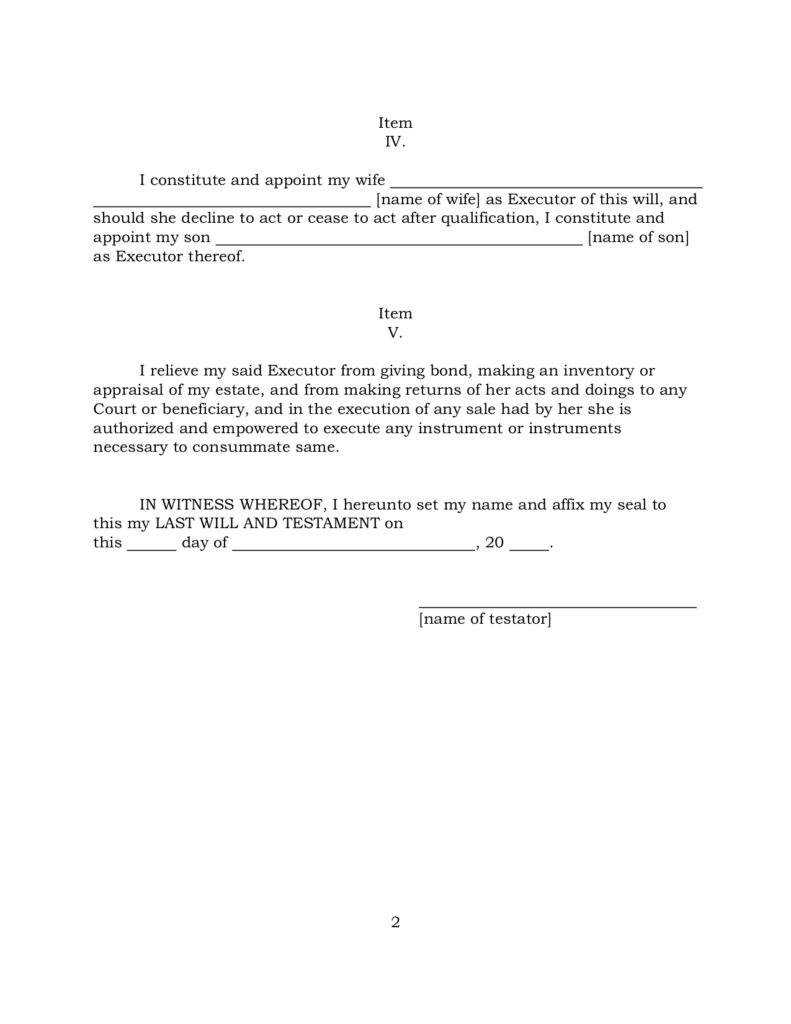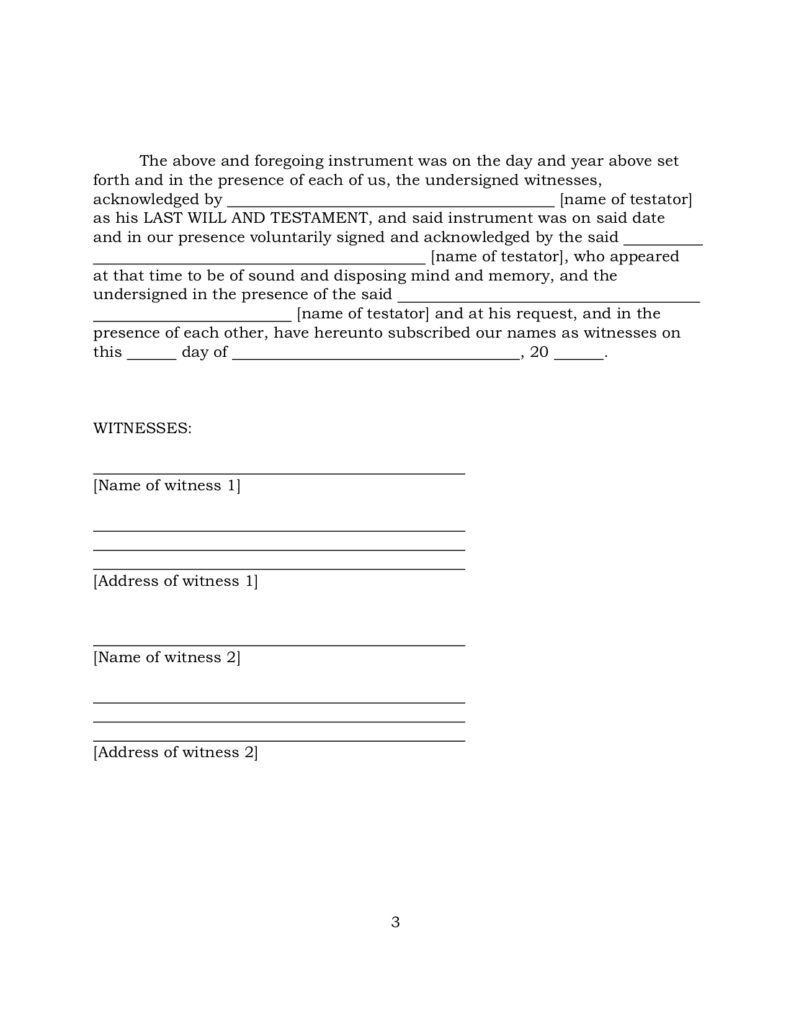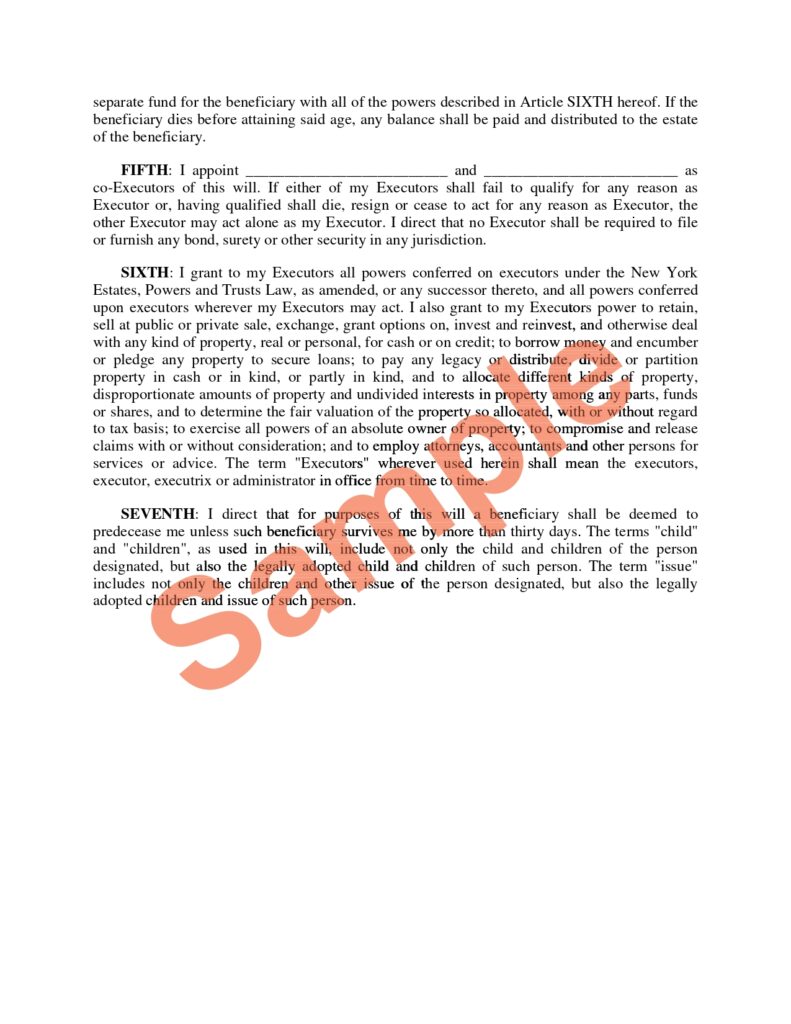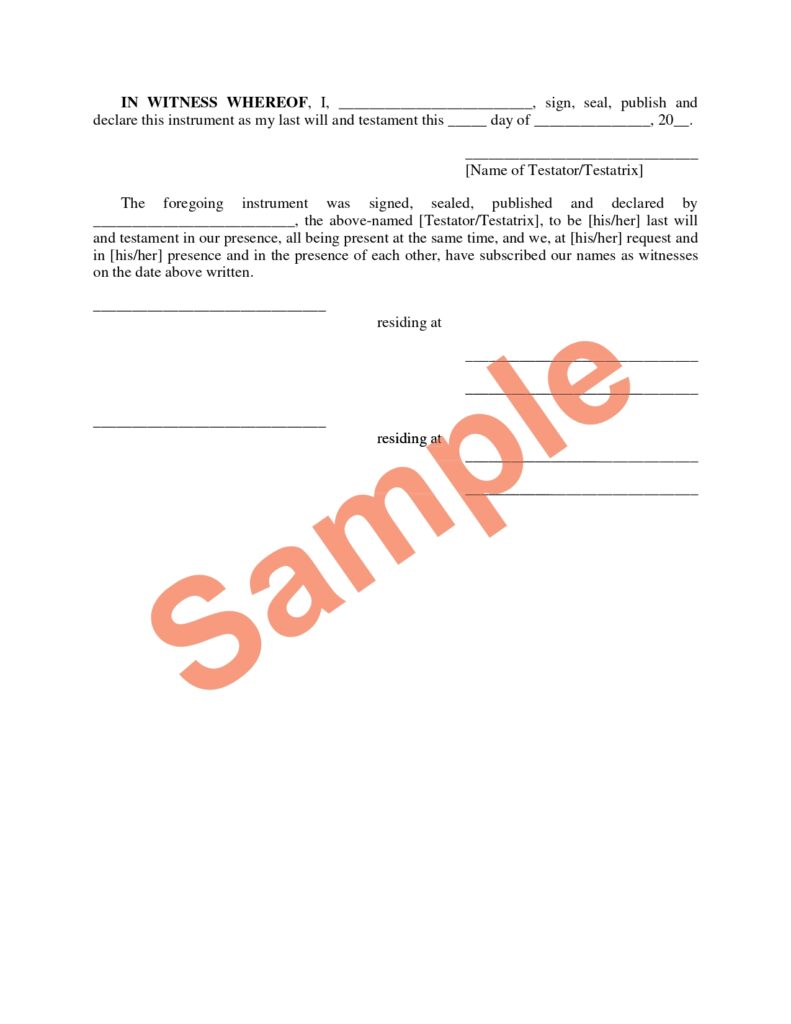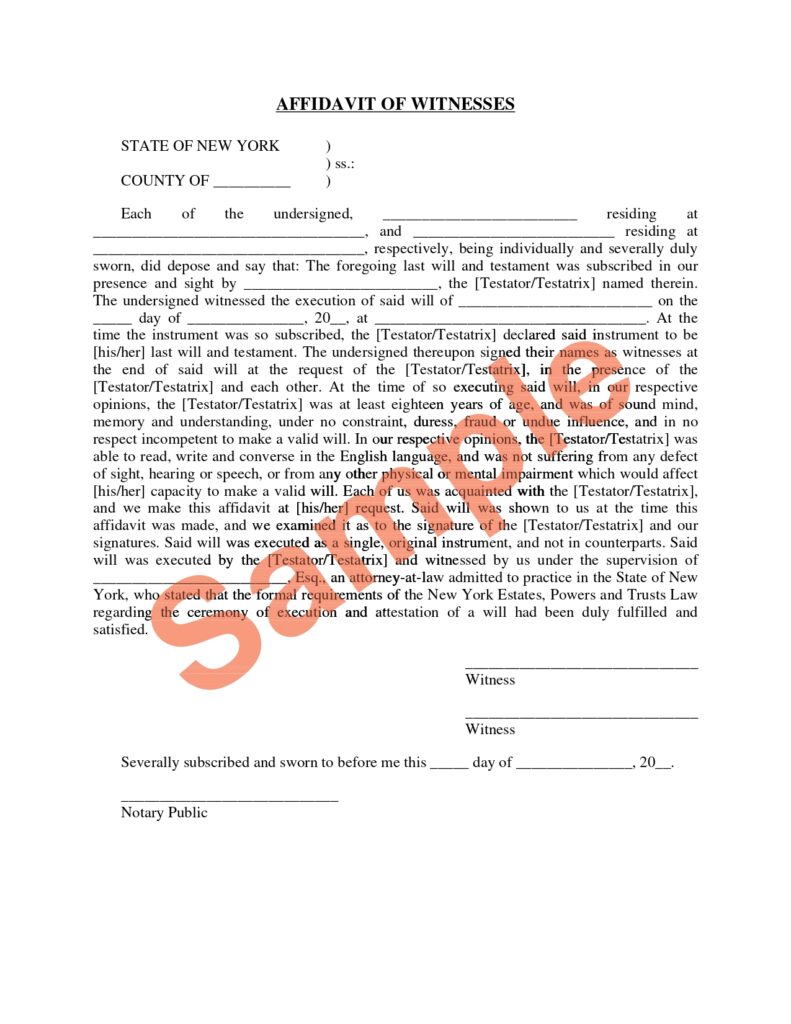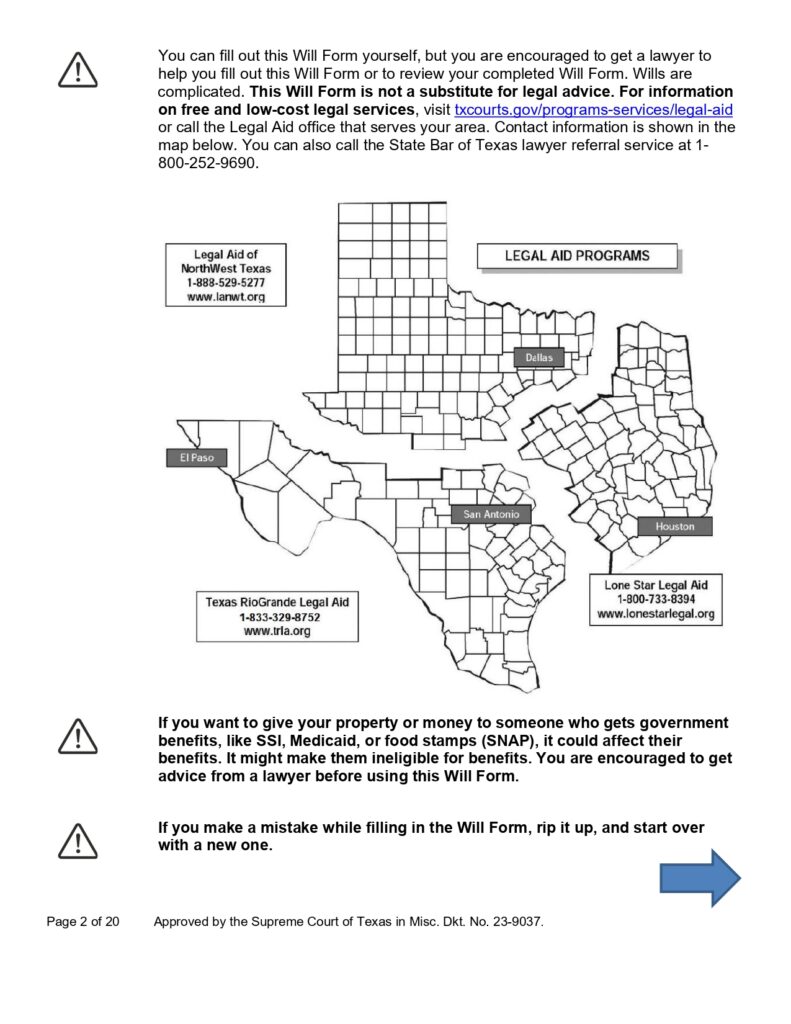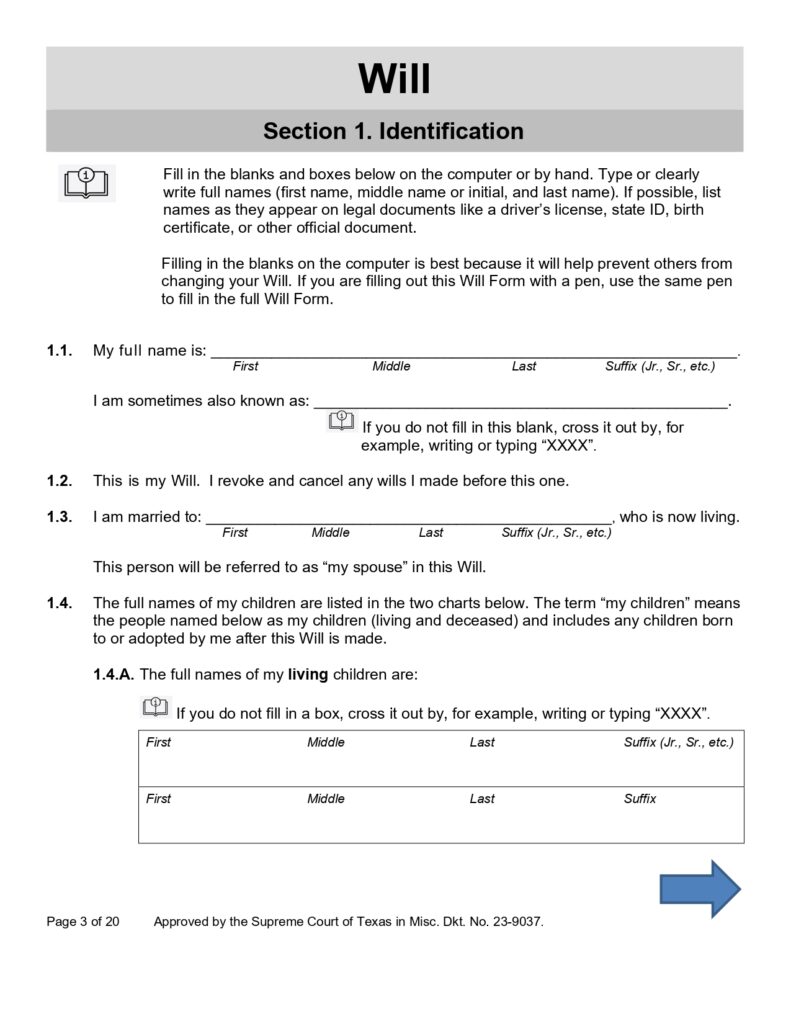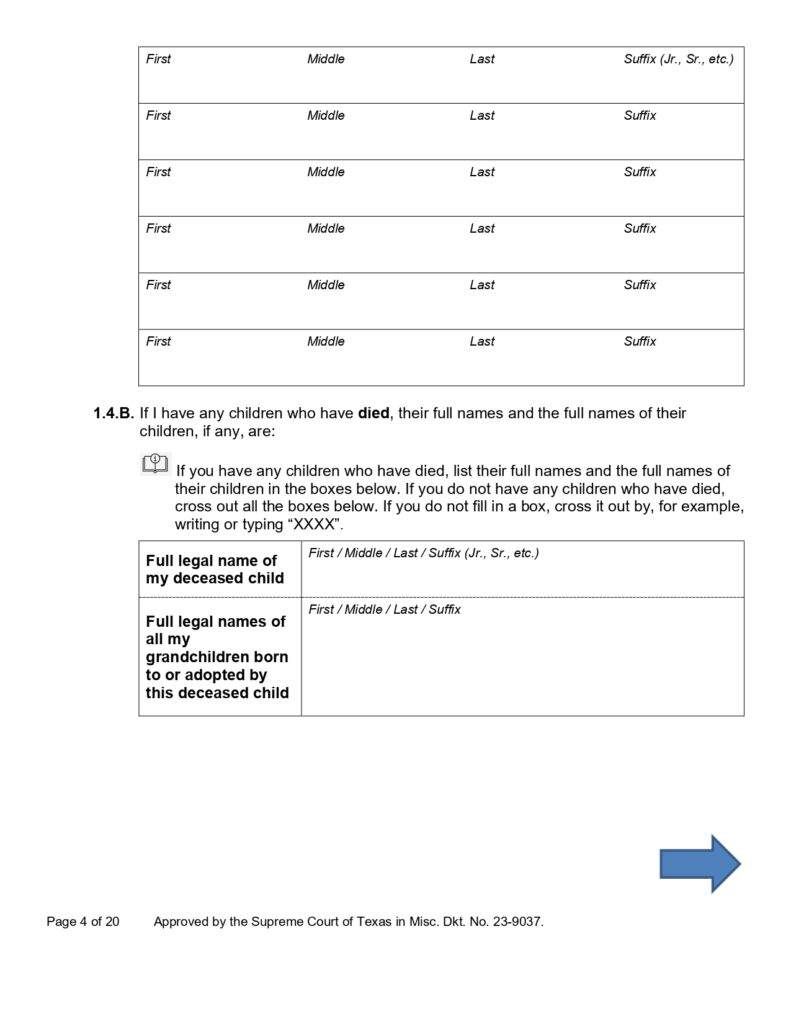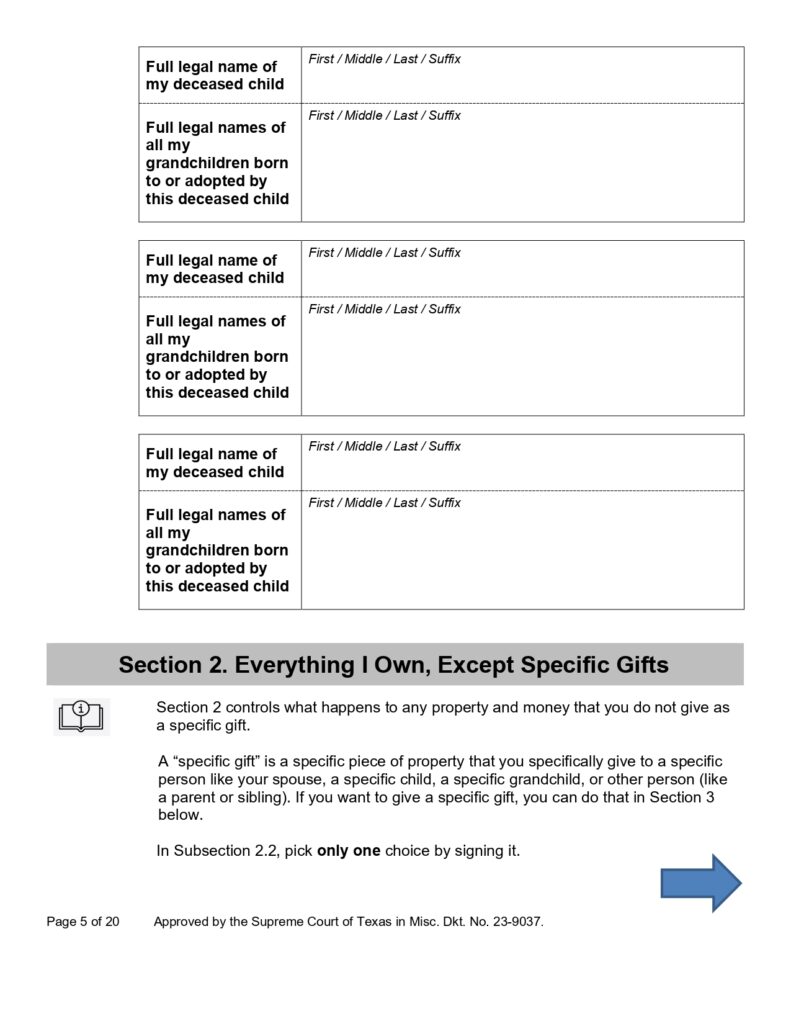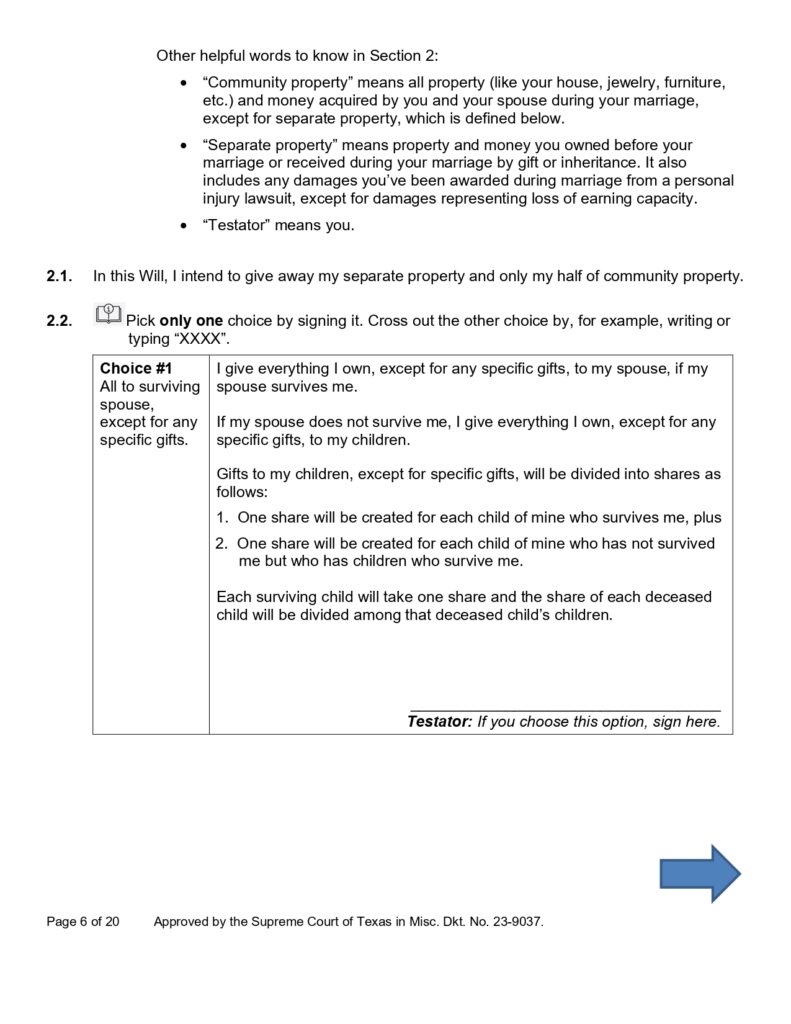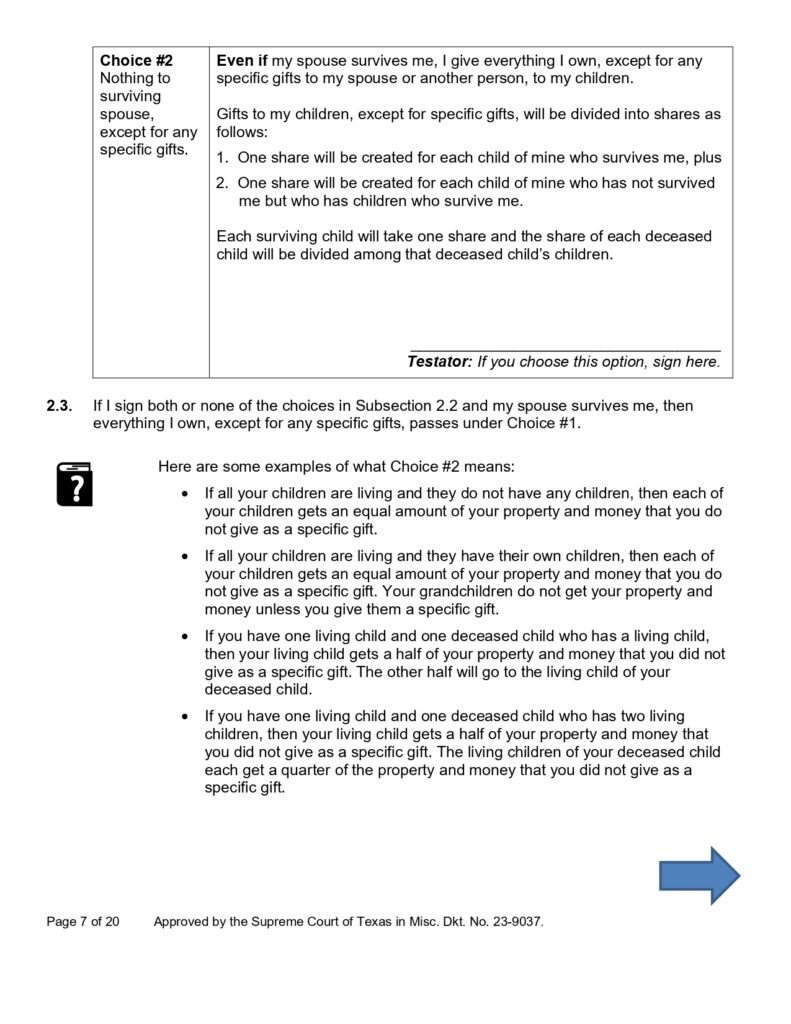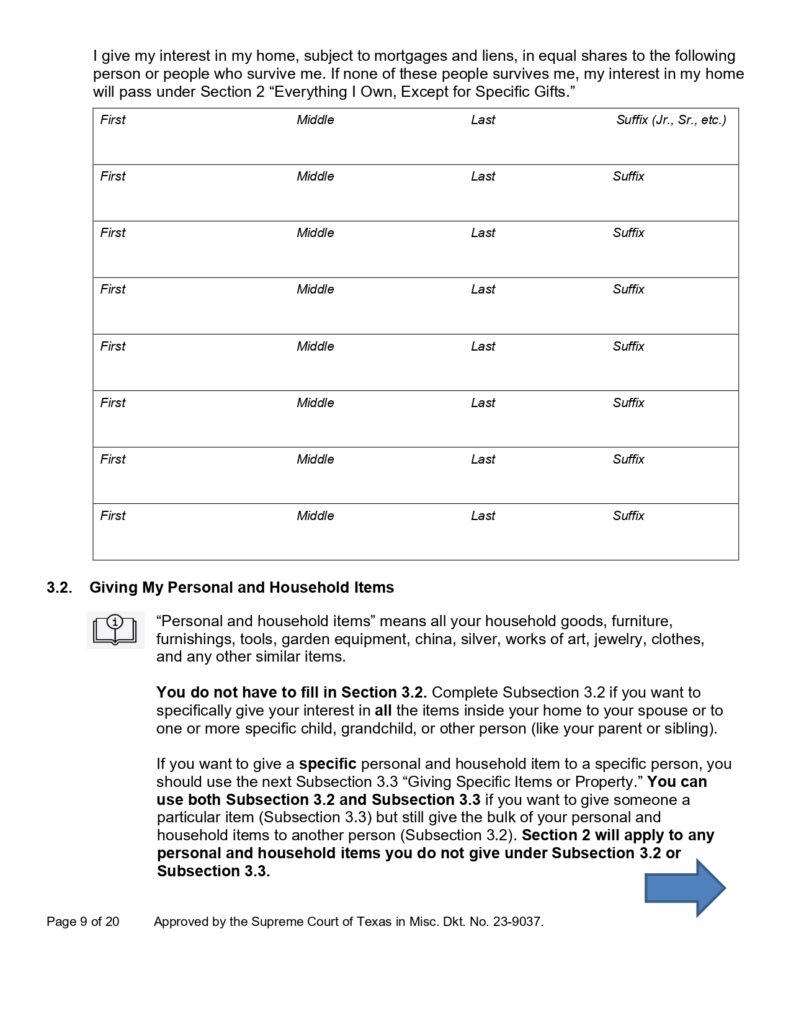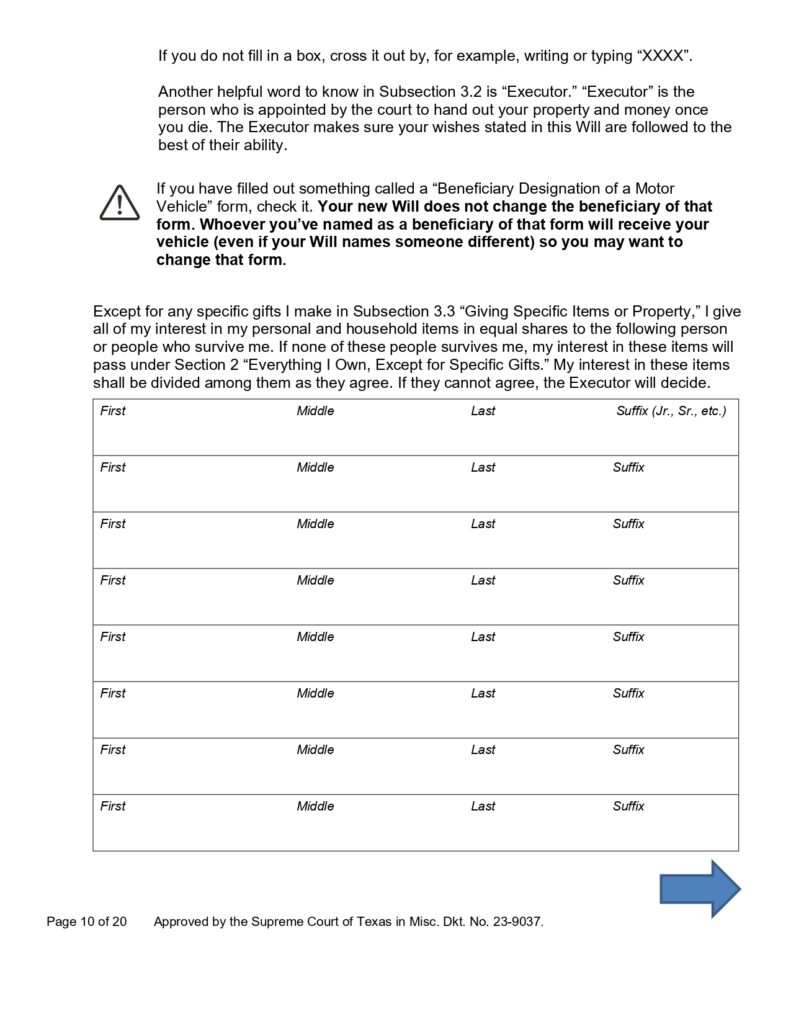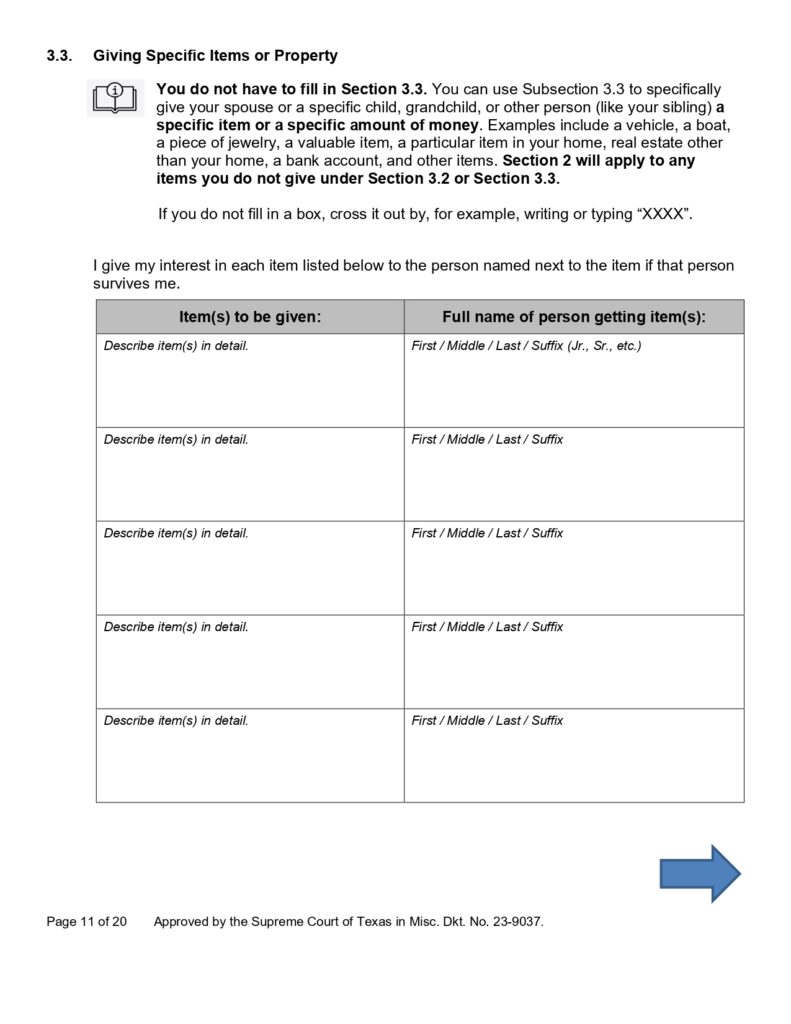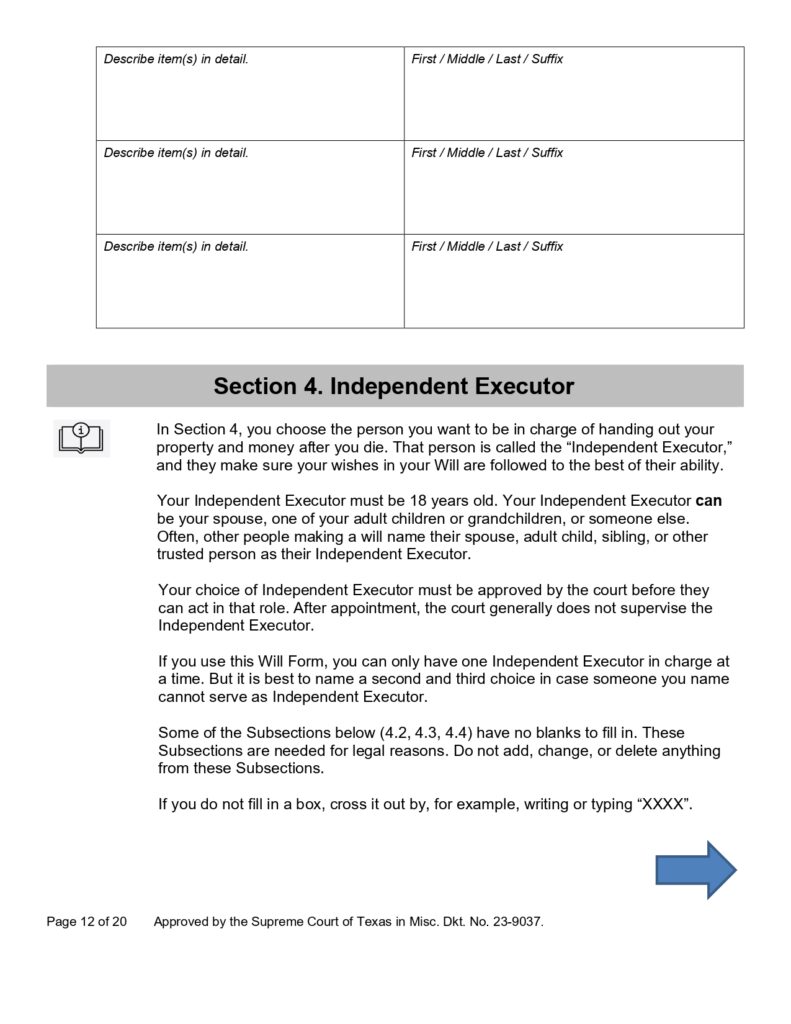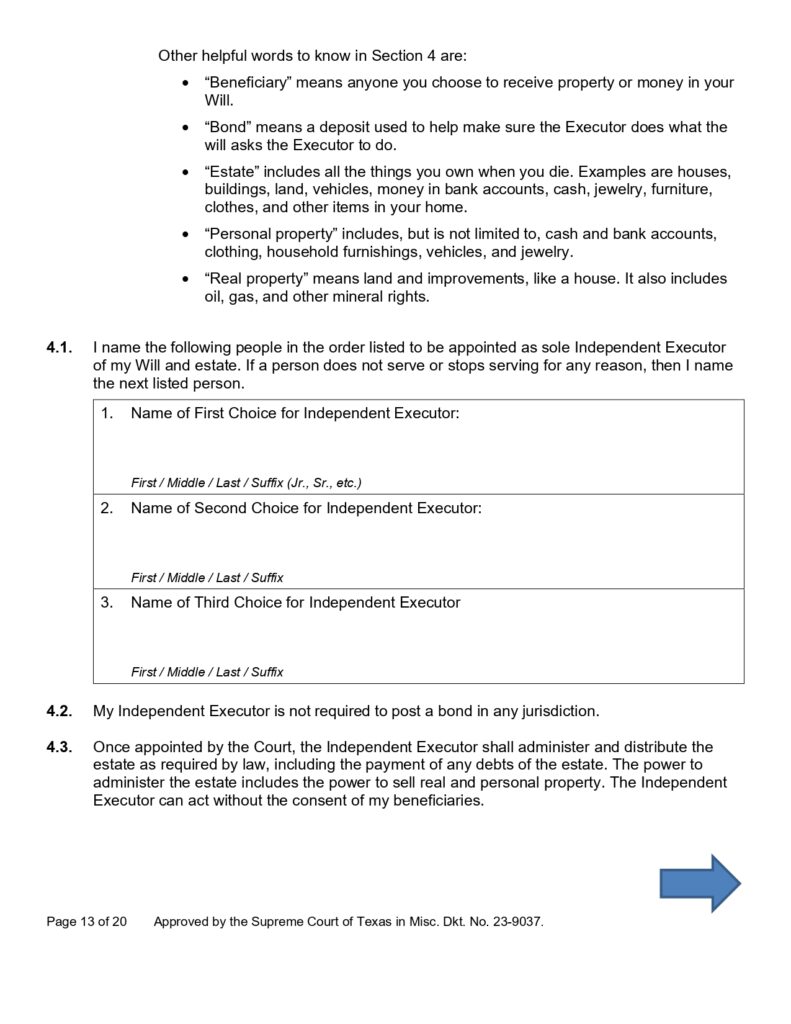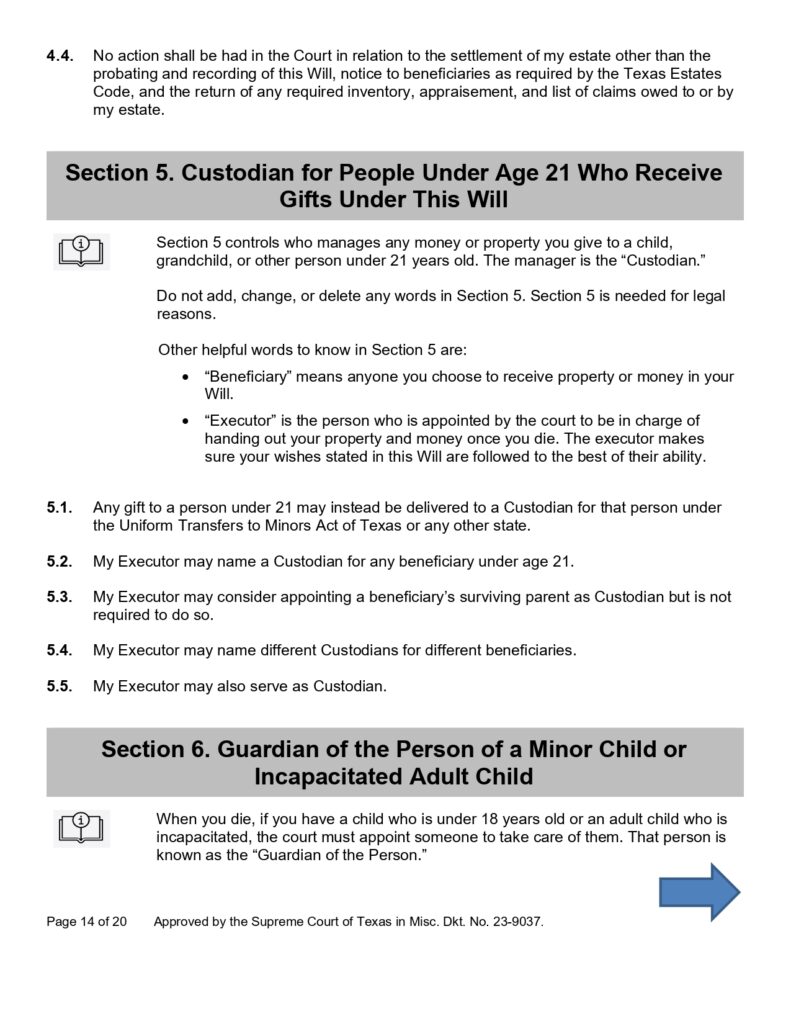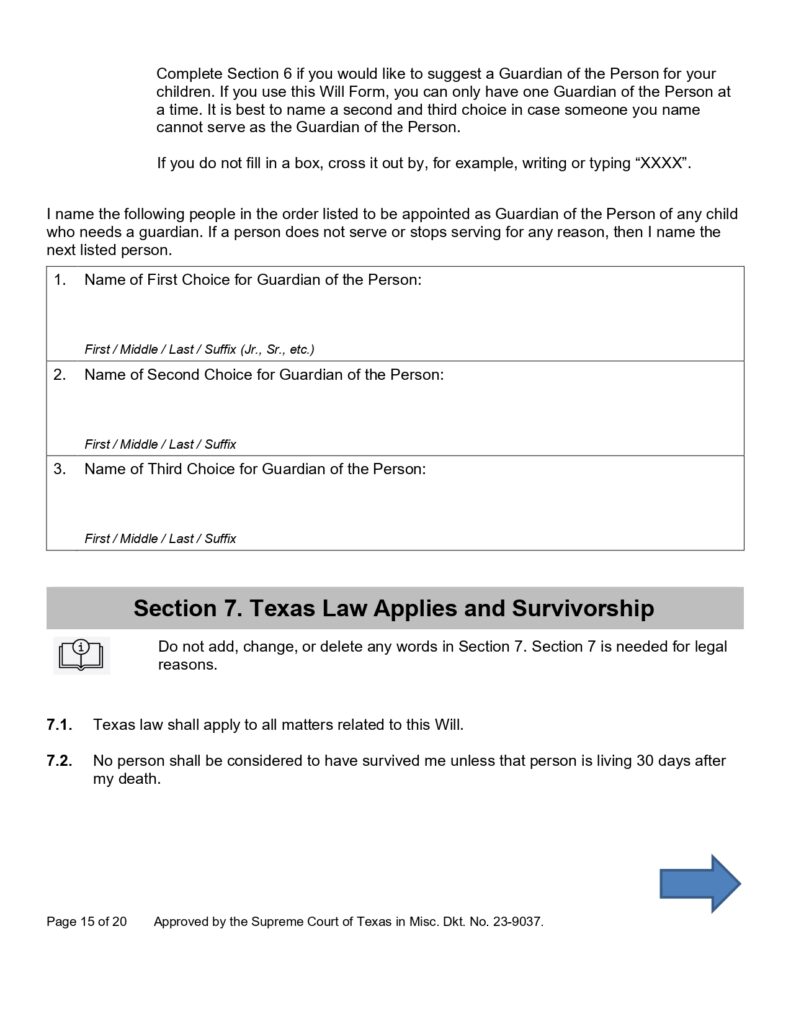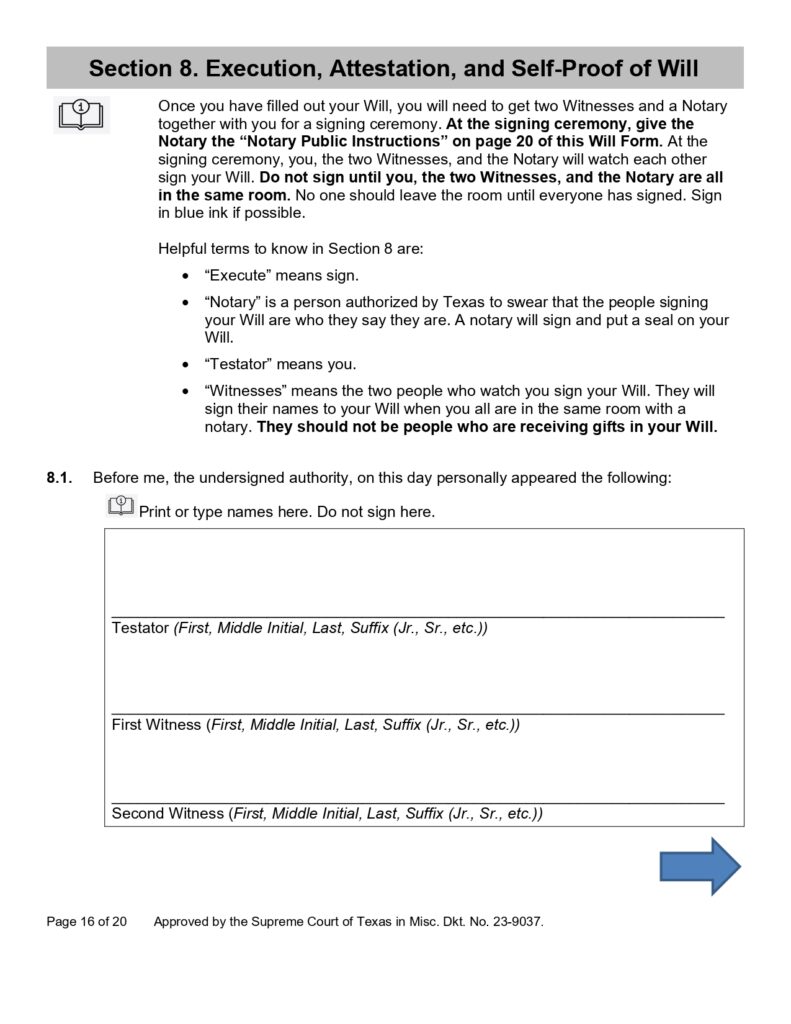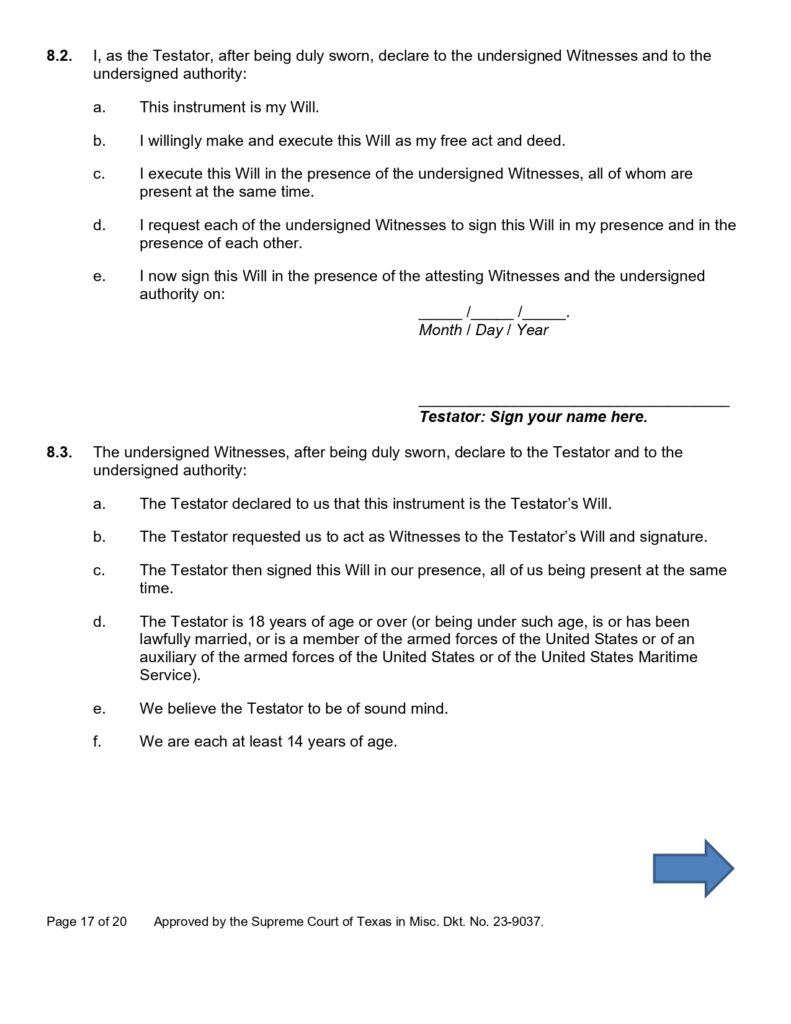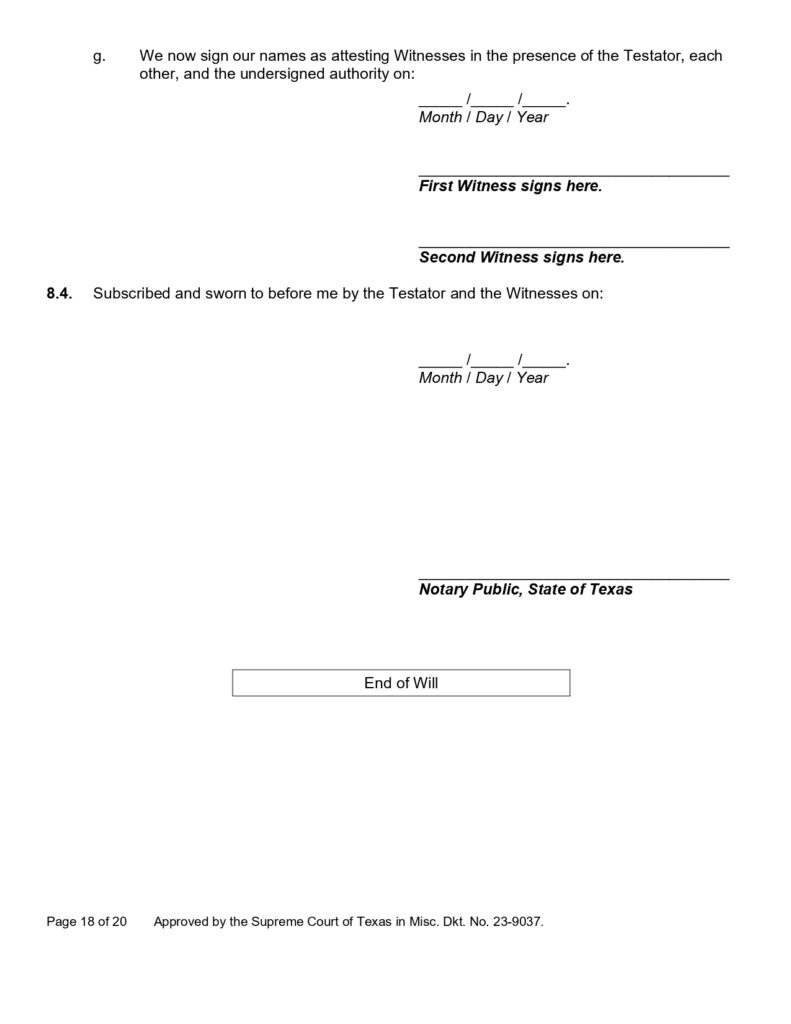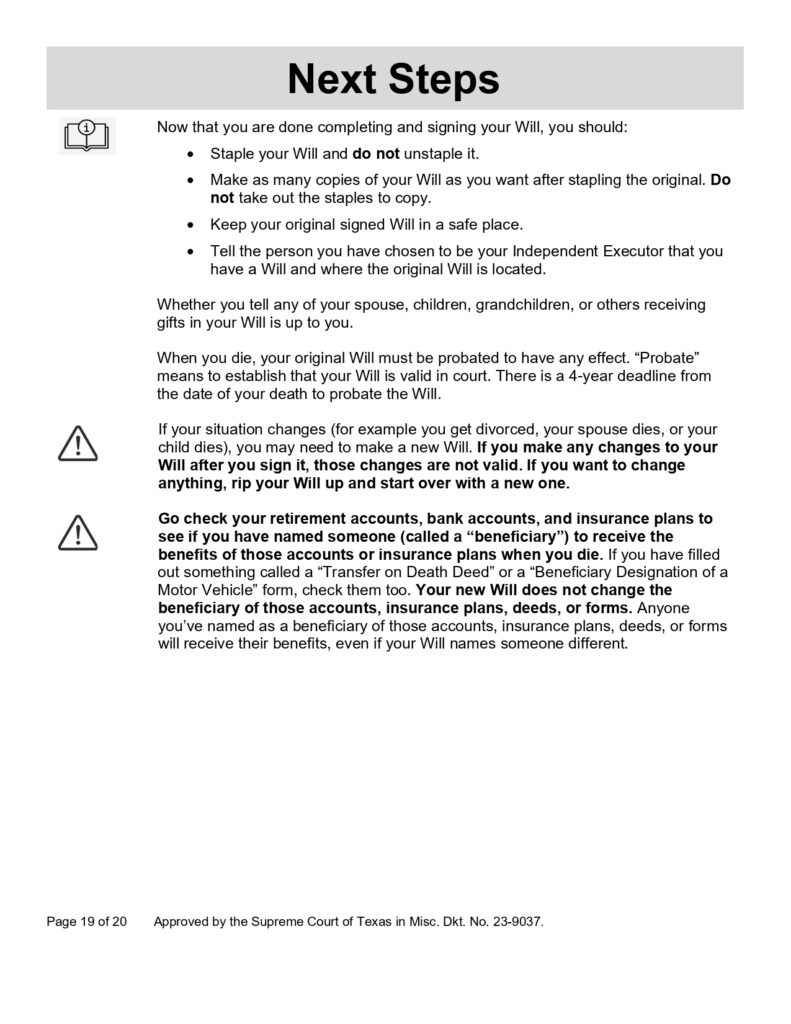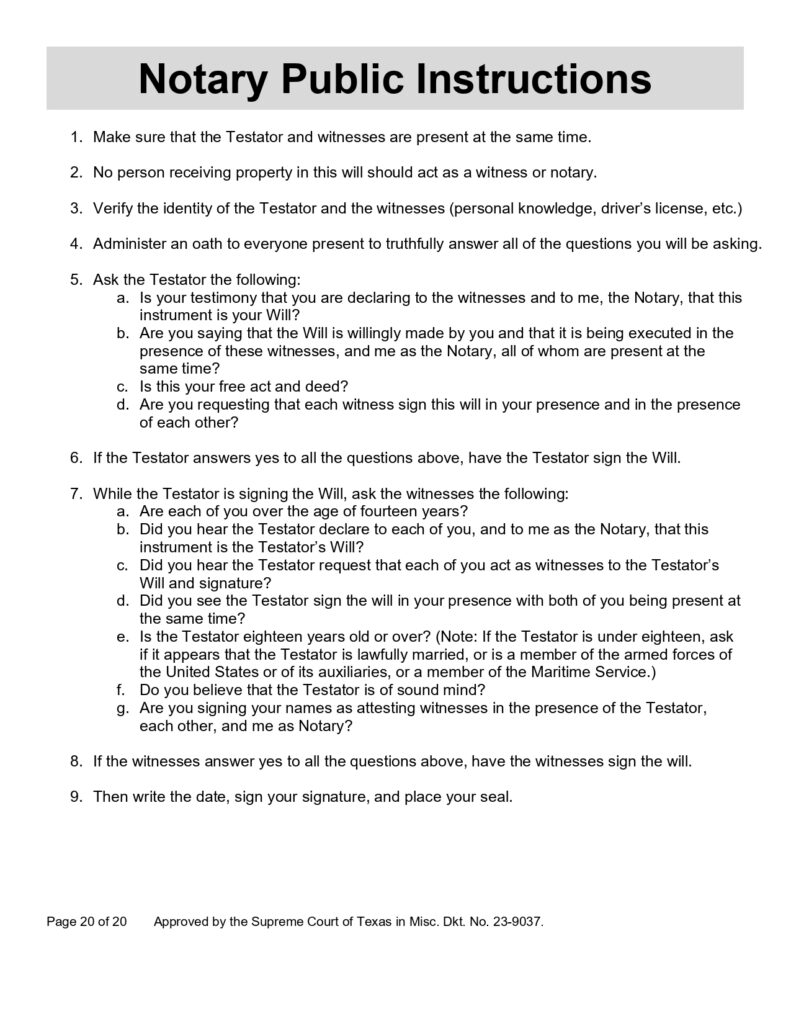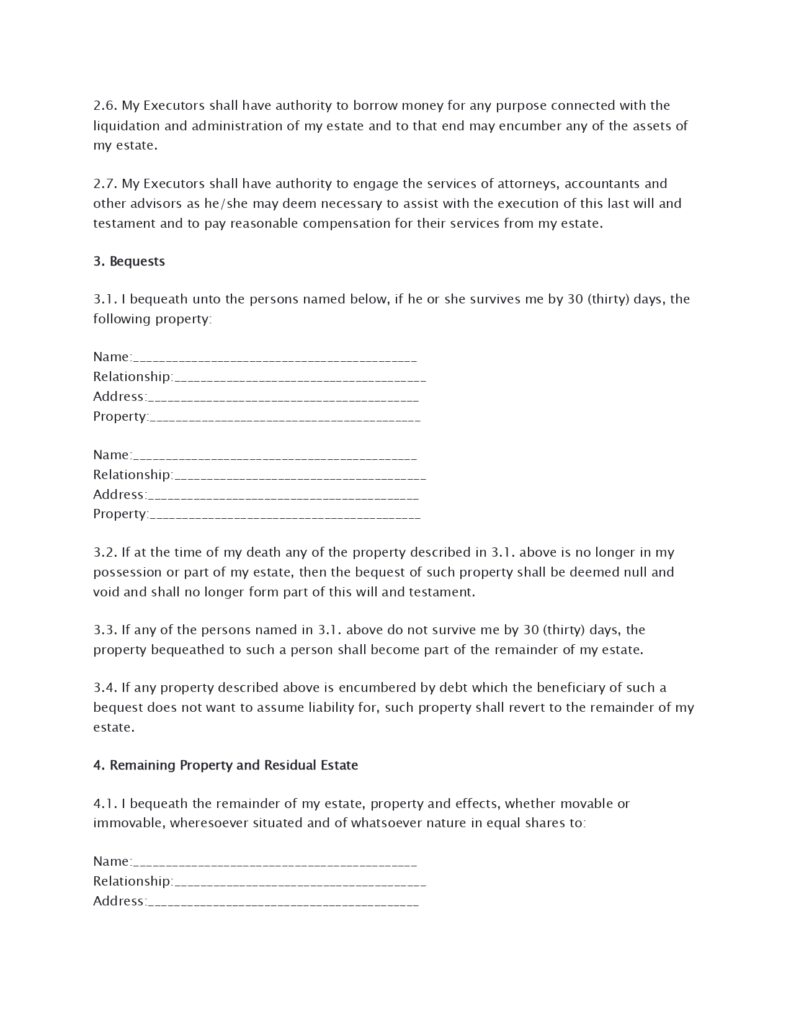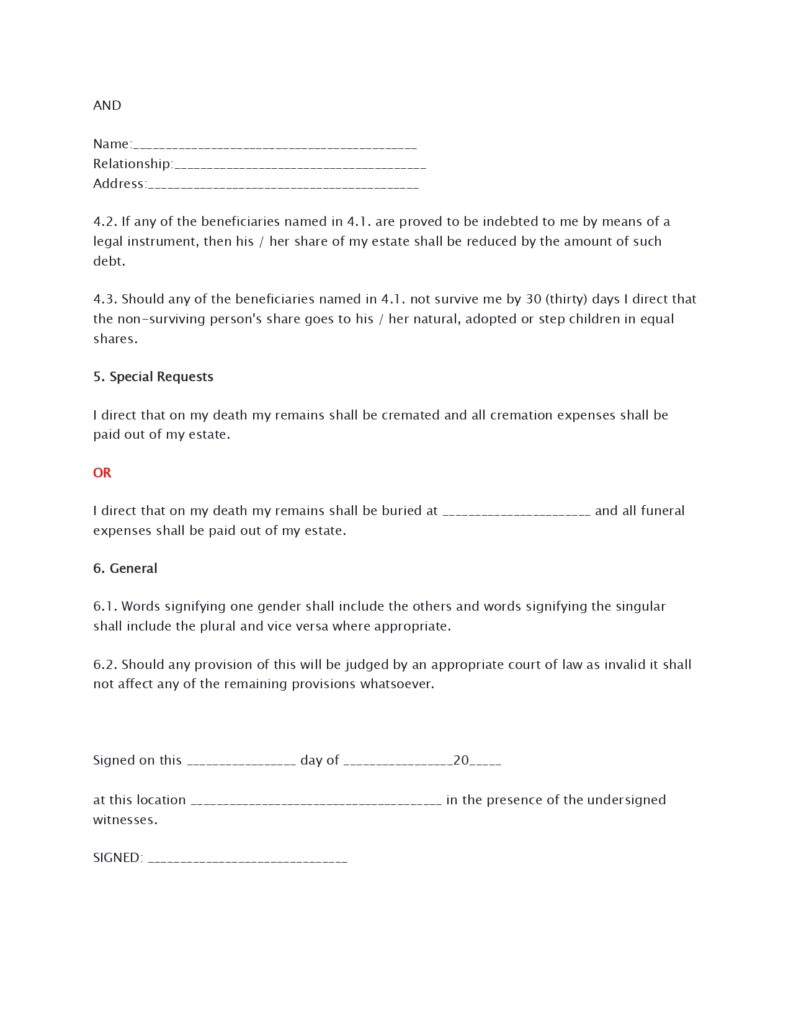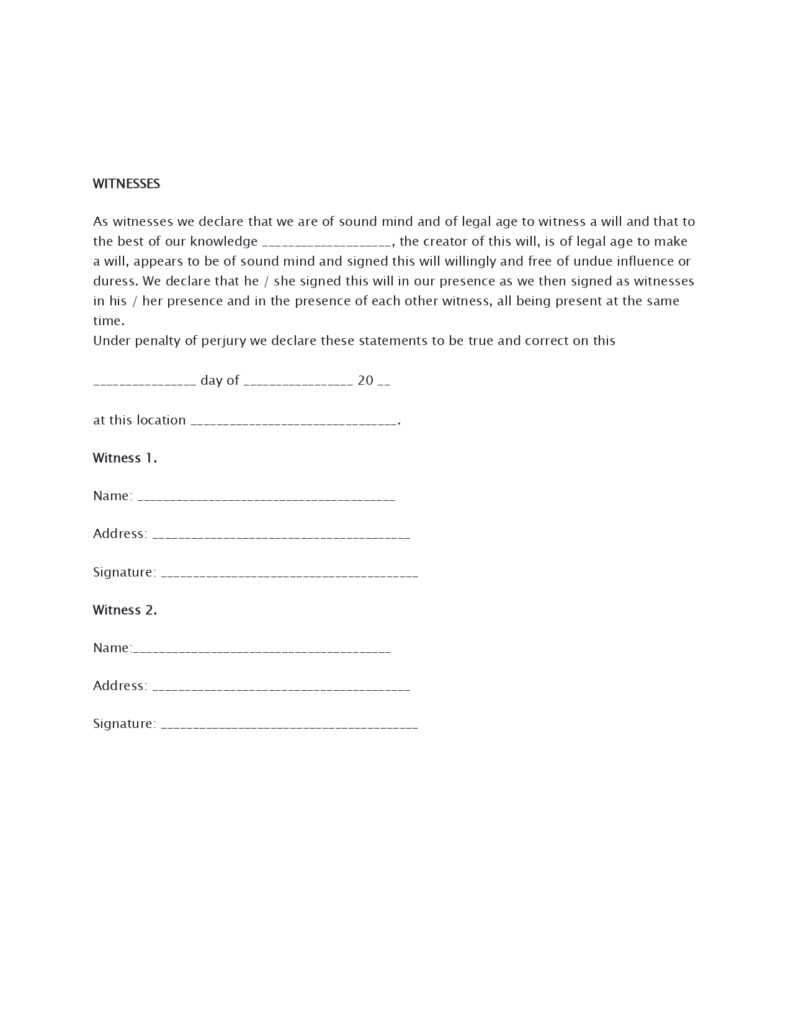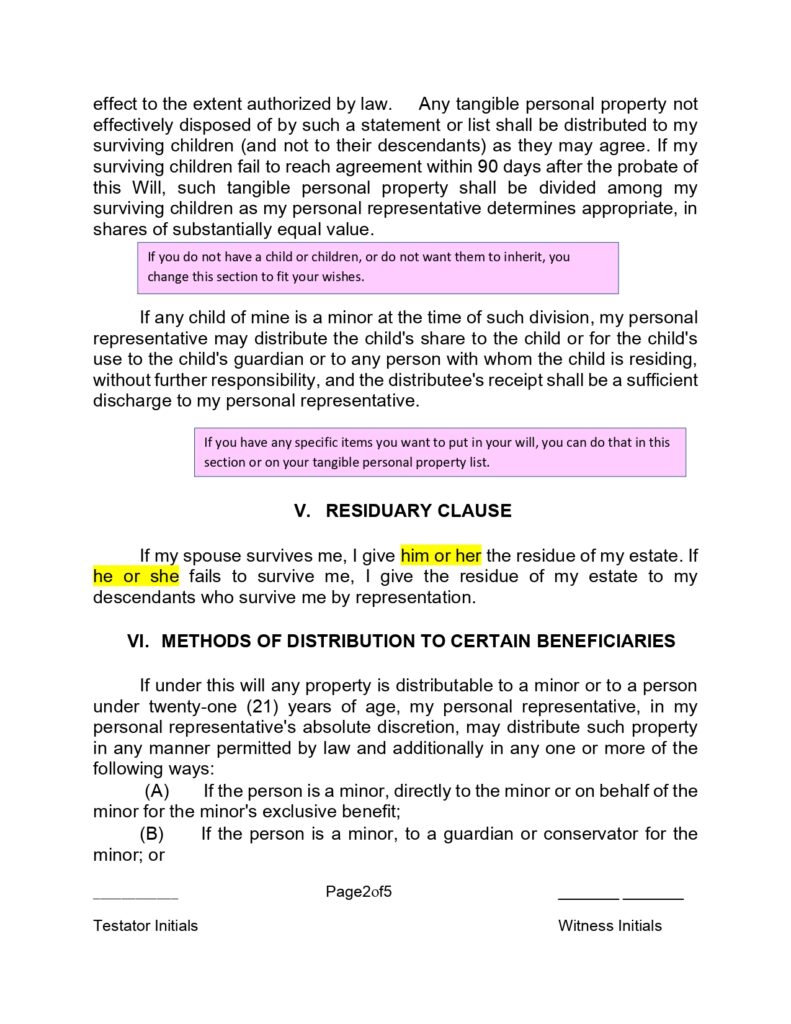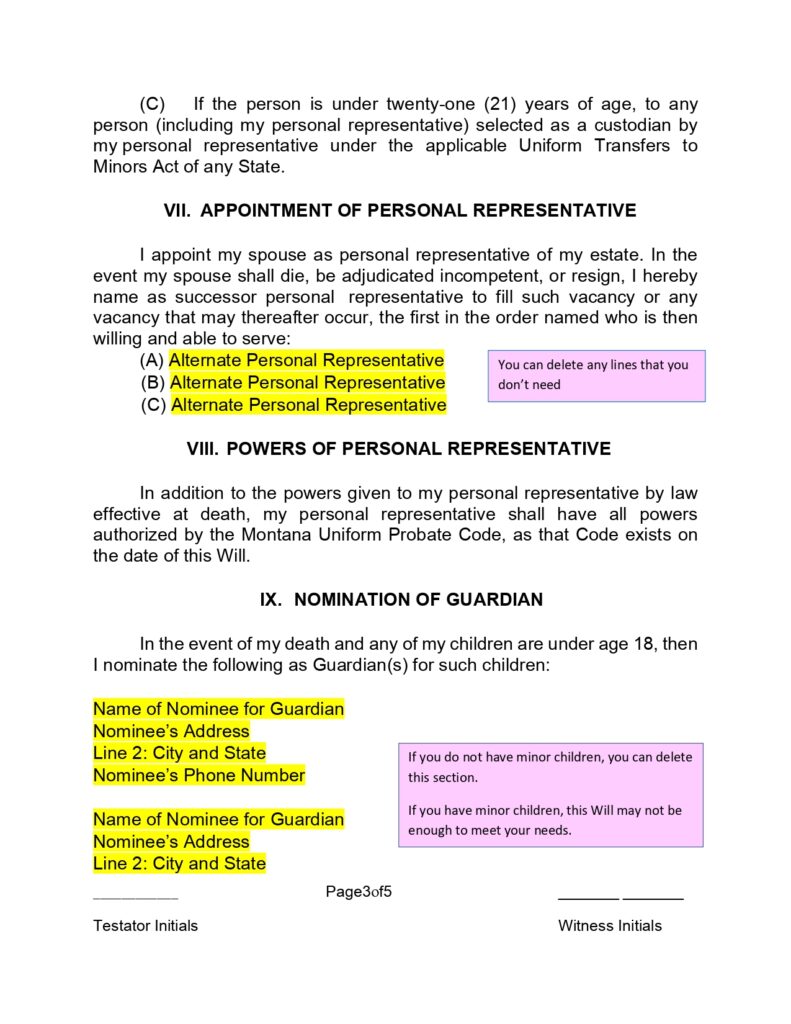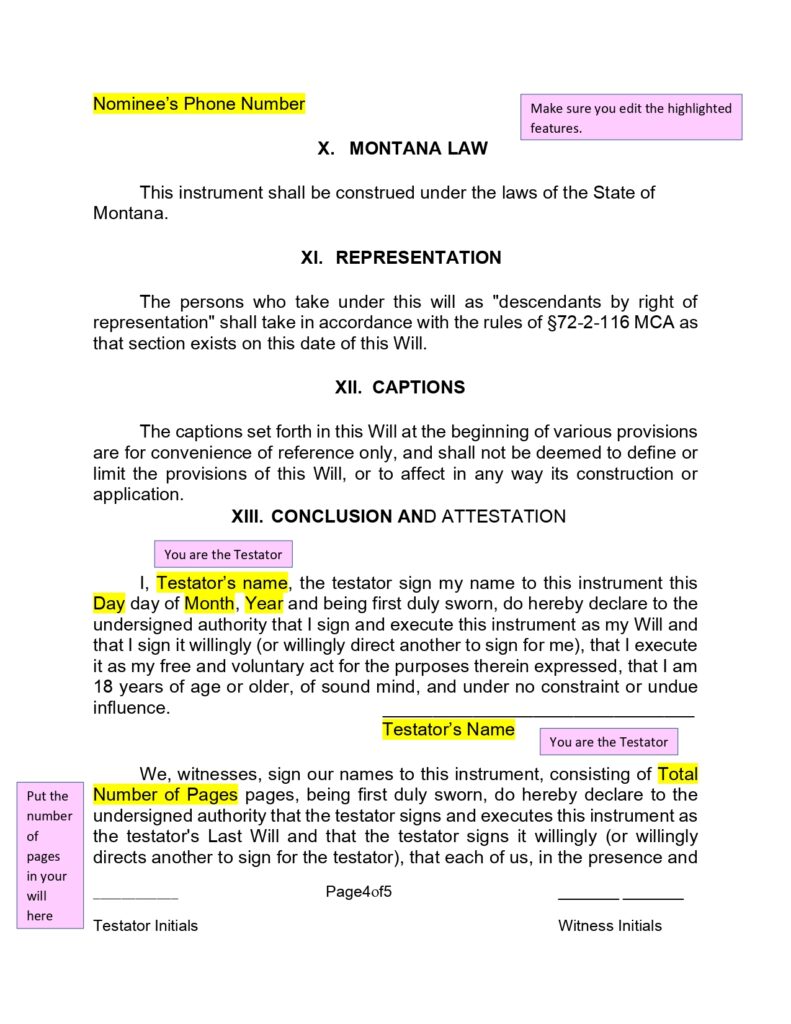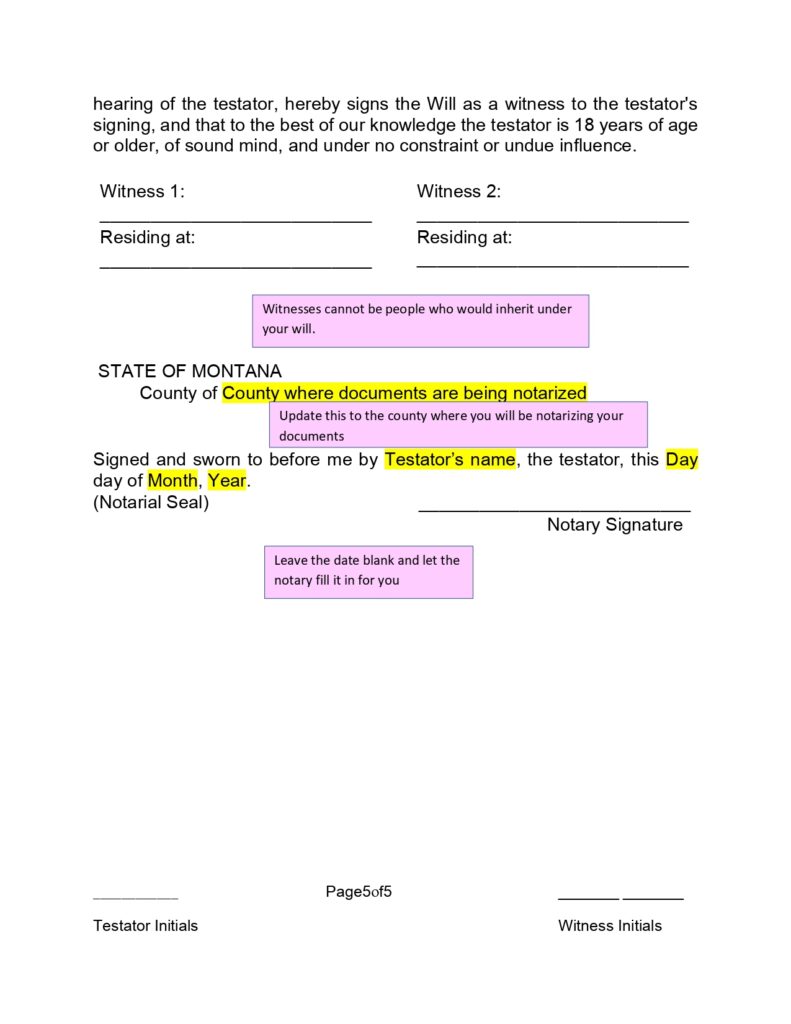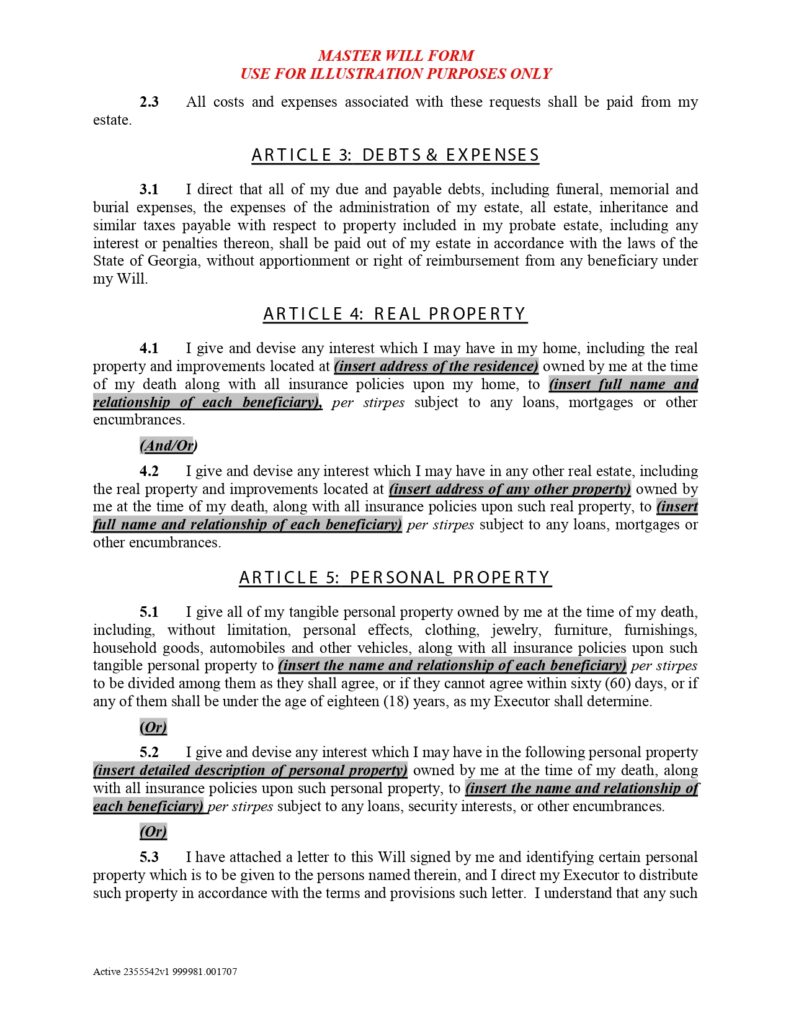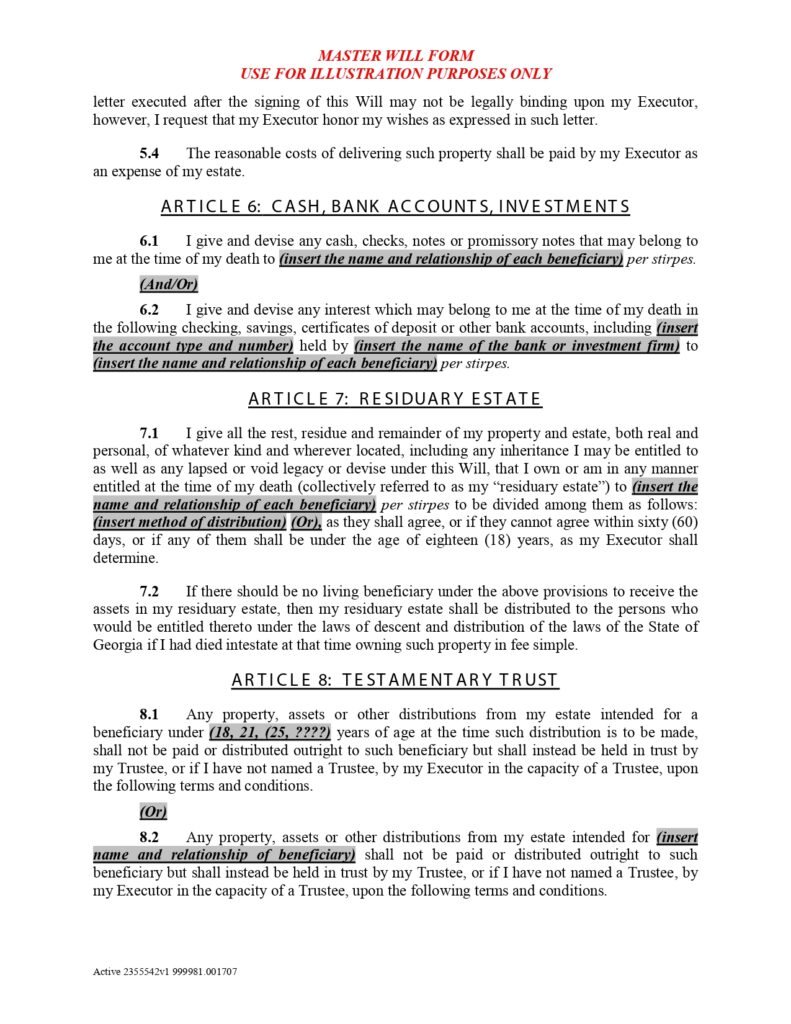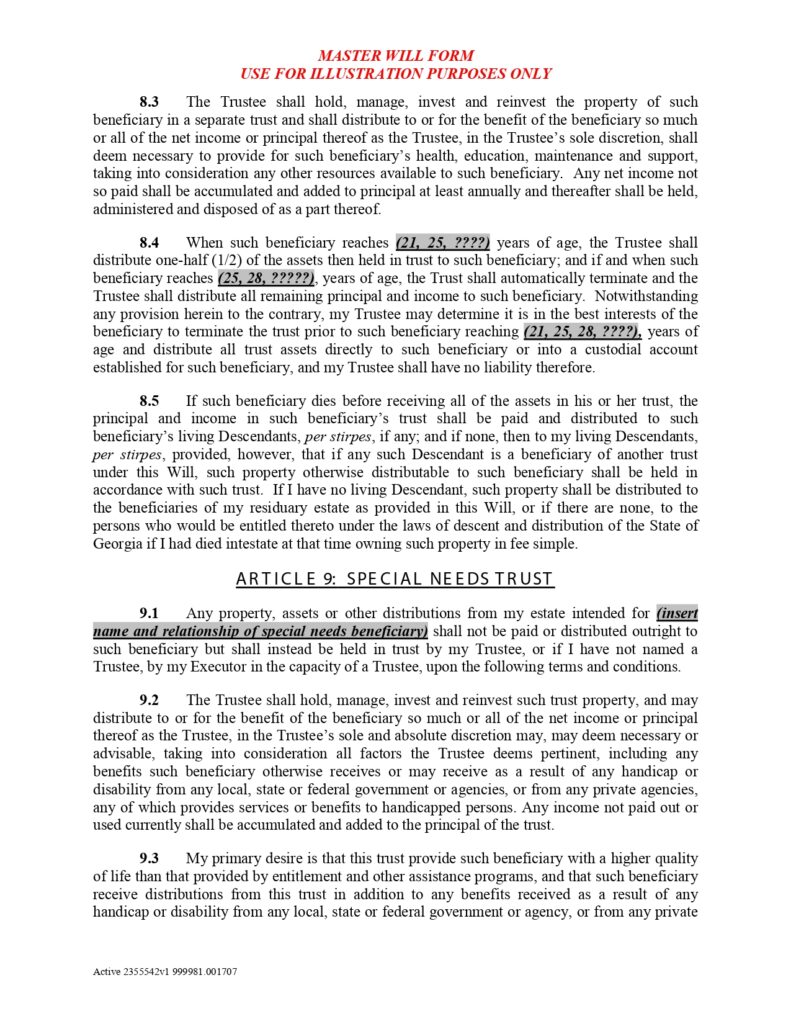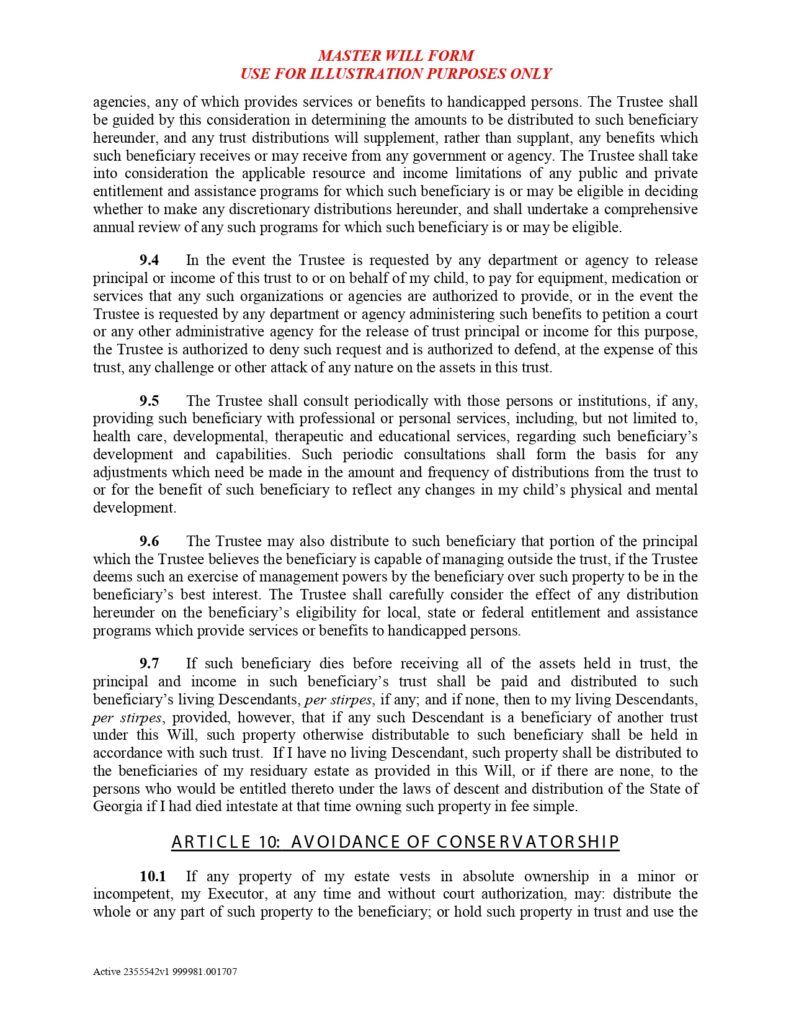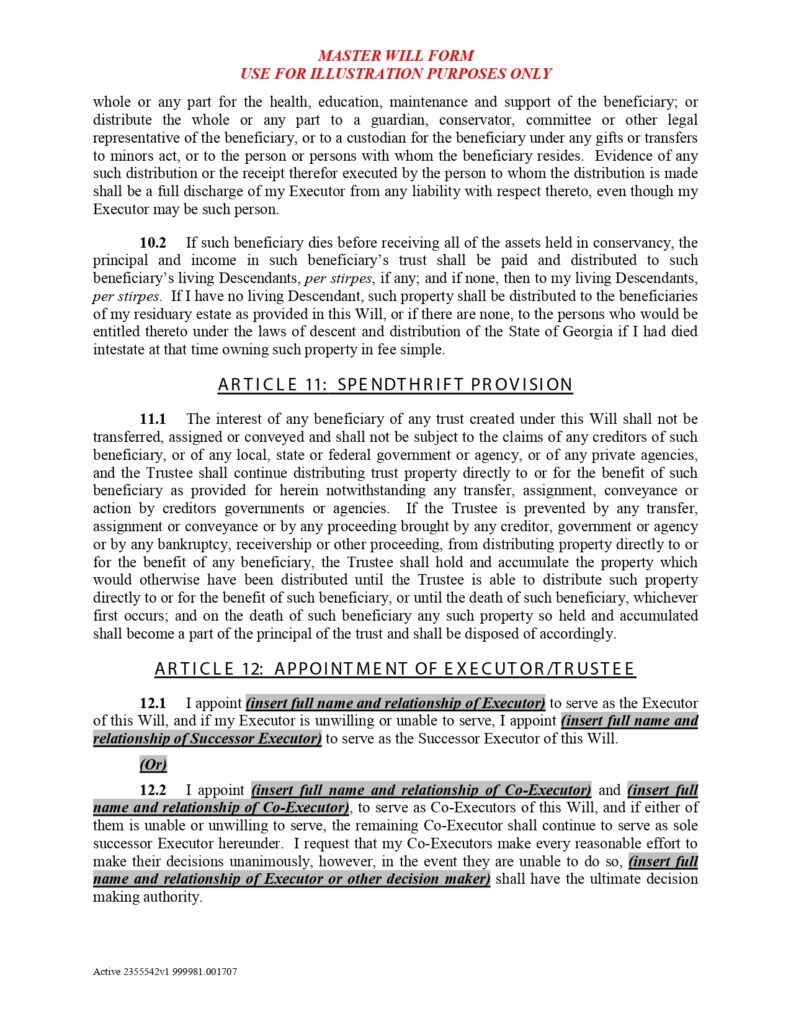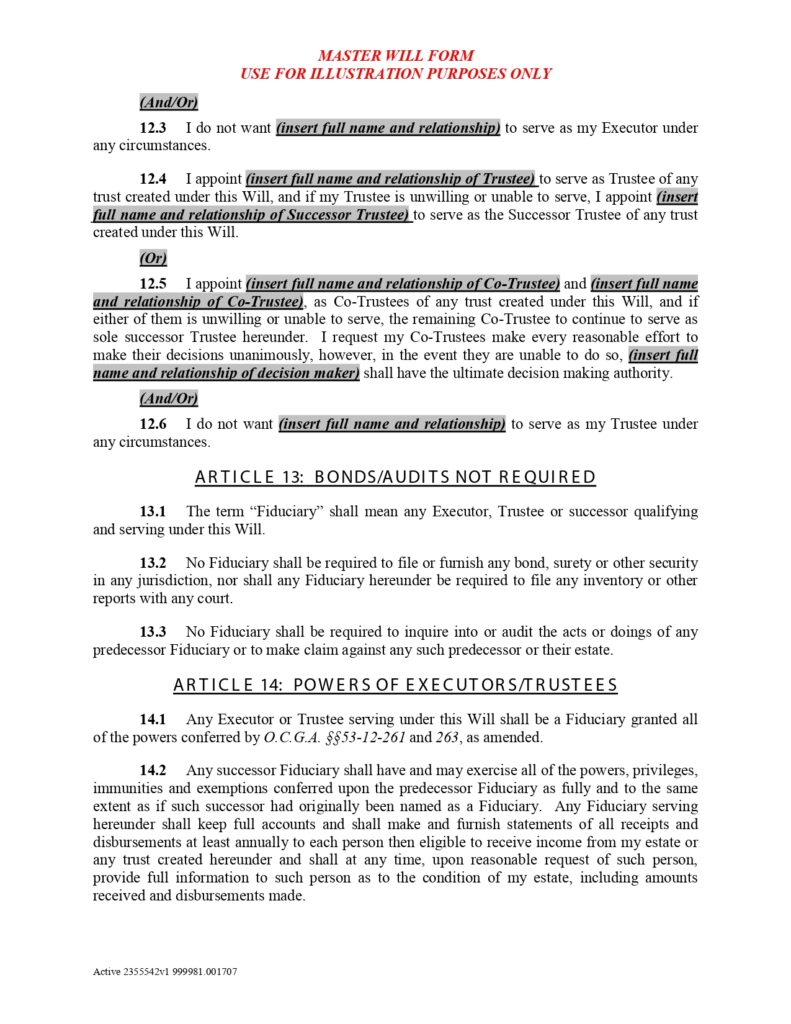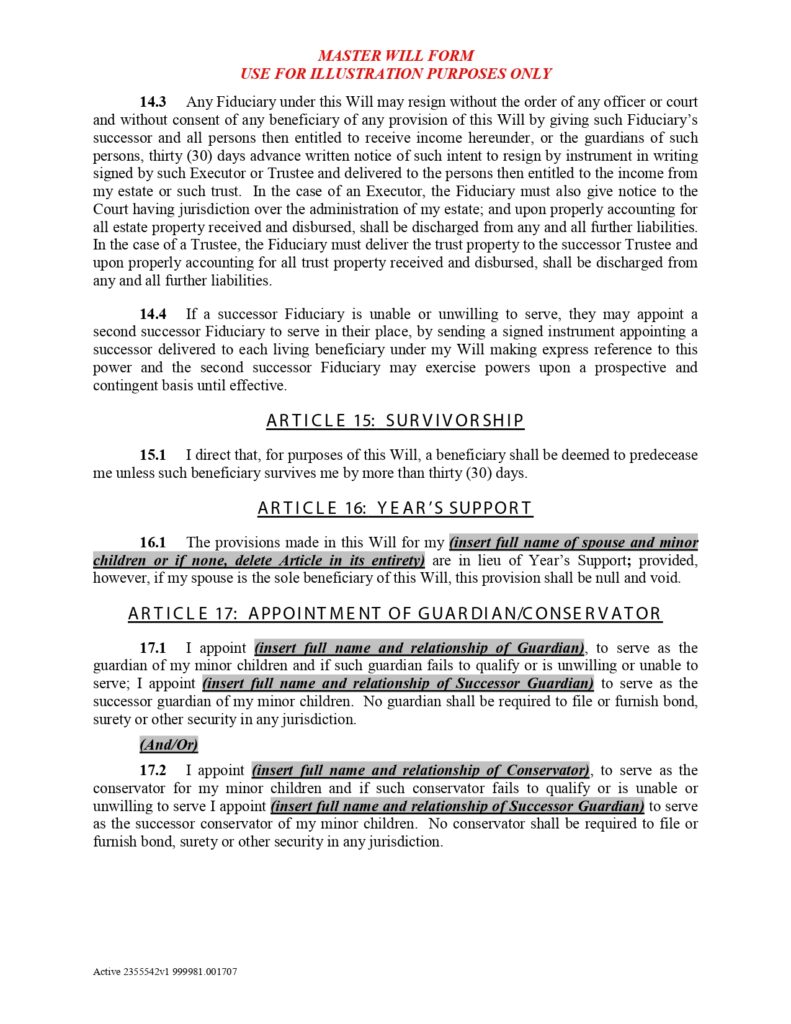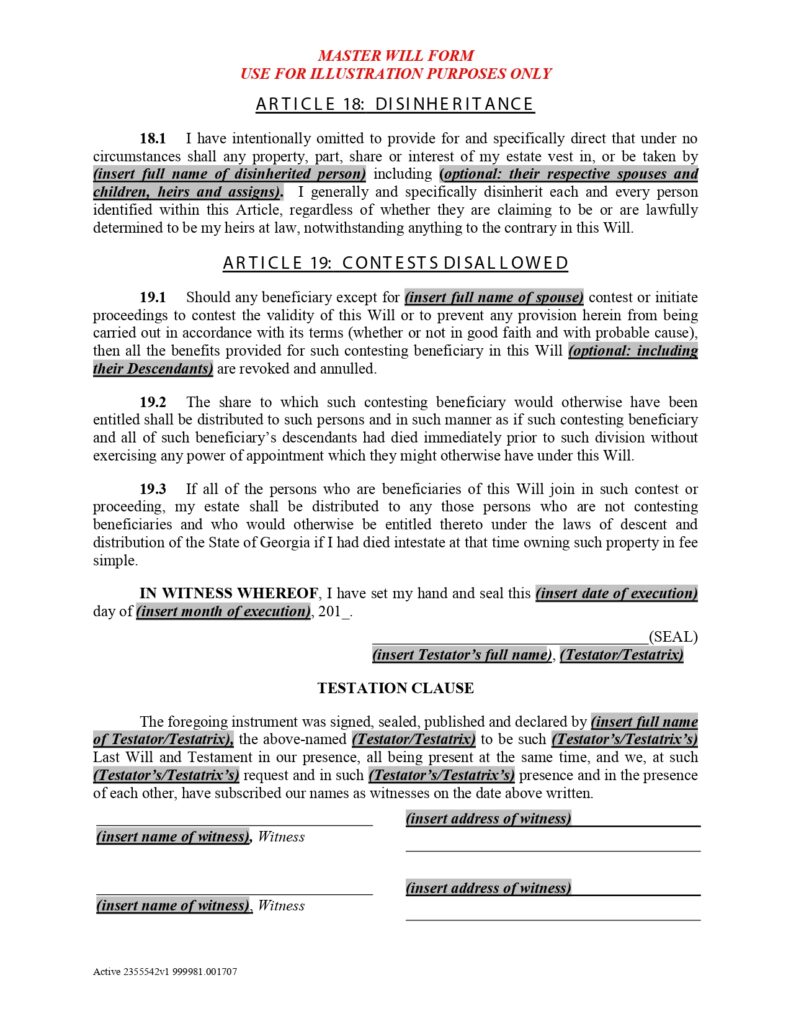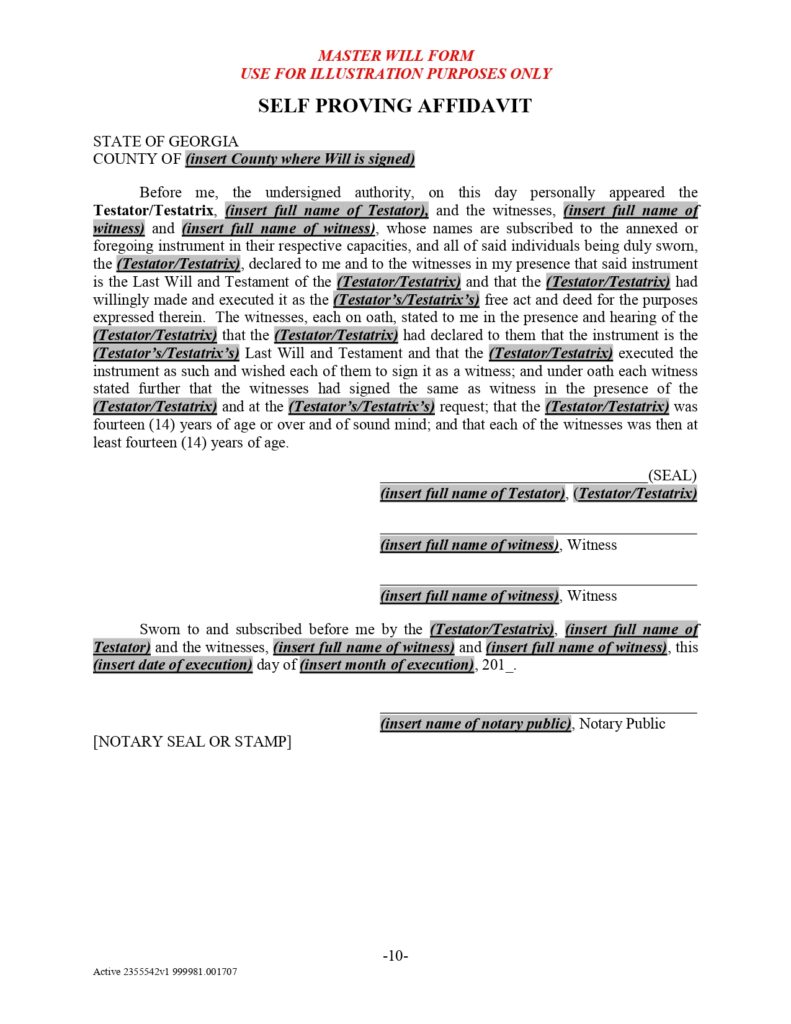Last Will and Testament Forms Free Printable– Testament to your wishes, a Last Will and Testament is important for ensuring your assets are distributed according to your desires after your passing. If you’re looking to take control of your legacy without incurring high legal fees, free printable forms can be a valuable resource. These forms empower you to articulate your personal wishes while adhering to legal requirements, safeguarding your family’s financial future. By being proactive now, you can avoid the potential pitfalls and disputes that may arise in the absence of a formal will.
Key Takeaways:
- Last Will and Testament forms can often be found for free online, allowing individuals to create a legal document without incurring costs.
- Printable forms typically come with instructions to help users complete the document correctly and ensure it meets state-specific legal requirements.
- Using a free template can be an efficient option for individuals with straightforward estate planning needs or minimal assets.
- It is important to review the completed will for accuracy and ensure it is properly signed and witnessed as per local laws.
- While free forms can be a great starting point, consulting with a legal professional is advisable for more complex estates or specific legal questions.
What are Last Will and Testament Forms?
To create a comprehensive estate plan, it’s important to understand last will and testament forms. These legal documents allow you to specify how your assets should be distributed after your passing, ensuring your wishes are honored and minimizing disputes among heirs. By utilizing a will form, you can outline your desires clearly and confidently, giving you peace of mind for the future.
Definition and Legal Requirements
Legal guidelines vary by state, but at its core, a last will and testament is a formal document that communicates your wishes regarding the distribution of your estate upon your death. To be valid, it typically must be signed by you, witnessed by at least two individuals, and comply with the specific statutes governing wills in your jurisdiction.
Essential Components of a Valid Will
Below are basic elements that make a will valid. You must include an introductory statement, appoint an executor, clearly identify beneficiaries, and detail the distribution of your assets. Additionally, your will should contain provisions for guardianship of minor children, if applicable, to ensure their well-being after your passing. It’s also important to include a clause that revokes any previous wills to avoid confusion.
Will writing should be taken seriously as it can significantly impact your loved ones. Clearly naming your executor ensures that someone you trust manages your estate effectively. Providing detailed instructions for asset distribution minimizes conflicts among your heirs. Including a provision for guardianship of minors not only protects your children but also assures you that they will be cared for by someone you select. Always ensure that all components are compliant with local laws for maximum effectiveness.
What Types of Free Printable Will Forms are Available?
While various options are available, each type of will form serves a specific purpose to meet your needs. Here is a brief overview of common forms:
| Will Type | Purpose |
|---|---|
| Simple Will | Basic distribution of assets |
| Living Will | Healthcare decisions |
| Pour-Over Will | Assets into a trust |
| Testamentary Trust Will | Manage assets for beneficiaries |
| Holographic Will | Handwritten and often informal |
Knowing the differences among free printable will forms can help you choose the one that best fits your situation.
Simple Will Forms
By opting for a simple will form, you can easily outline how you want your assets distributed after your passing. This straightforward document typically covers basic wishes regarding your estate, making it an excellent choice for individuals without complex financial situations.
Living Will Forms
Against the uncertainties of healthcare decisions, a living will allows you to specify your preferences for medical treatment when you are unable to communicate. This document ensures your wishes are respected in critical medical scenarios.
With a properly executed living will form, you can make clear your desires regarding life-sustaining treatments, which can ease the burden on your loved ones during difficult times. By outlining your healthcare decisions, you maintain control over your medical care, even if you cannot voice your choices.
Pour-Over Will Forms
Will a pour-over will form redirects your assets into a trust upon your death, allowing for smoother management and distribution. This type of will typically works in conjunction with a living trust, ensuring your property is handled according to your terms.
Further, a pour-over will can be vital for ensuring that any assets not previously included in your trust are seamlessly integrated after your passing. This strategy helps optimize the management of your estate, giving you peace of mind knowing your beneficiaries will be cared for effectively.
Testamentary Trust Will
A Testamentary Trust Will is a legal document that allows you to manage assets for the benefit of your beneficiaries after your death. Unlike a simple will, this type of will establishes a trust that holds and manages assets on behalf of the beneficiaries, often minors or individuals who may not be ready to handle large sums of money. The trustee, who is appointed in the will, has the responsibility to oversee the trust according to your instructions. This ensures that your assets are distributed in a controlled manner, providing long-term financial security for your loved ones.
One of the key advantages of a Testamentary Trust Will is its flexibility. You can set specific conditions for how and when the assets are distributed, such as when the beneficiary reaches a certain age or achieves a particular milestone. This type of will is especially useful if you want to protect your estate from being misused or if you wish to provide for a family member with special needs. By using a Testamentary Trust Will, you can have peace of mind knowing that your assets will be managed responsibly and according to your wishes.
Holographic Will
A Holographic Will is a handwritten will that is often created without the formalities typically required in will preparation, such as witnesses or notarization. Because it is written entirely in the testator’s handwriting, it serves as a personal and informal way to outline how your assets should be distributed after your death. While this type of will is convenient and easy to create, it is important to note that not all jurisdictions recognize holographic wills as legally valid. Therefore, it is crucial to understand the laws in your area before relying on this method.
Despite its simplicity, a Holographic Will can be prone to challenges and disputes, especially if the handwriting is unclear or if there are ambiguities in the instructions. Without the presence of witnesses, it may also be difficult to prove the authenticity of the document in court. However, in emergency situations where a formal will cannot be prepared, a holographic will can serve as a temporary solution. To avoid potential legal complications, it is advisable to consult with an attorney to ensure that your final wishes are clearly documented and legally enforceable.
Last Will and Testament Forms Free Printable
Blank Last Will and Testament Form Simple
PRINTABLE PDF: Blank Last Will and Testament Form Simple
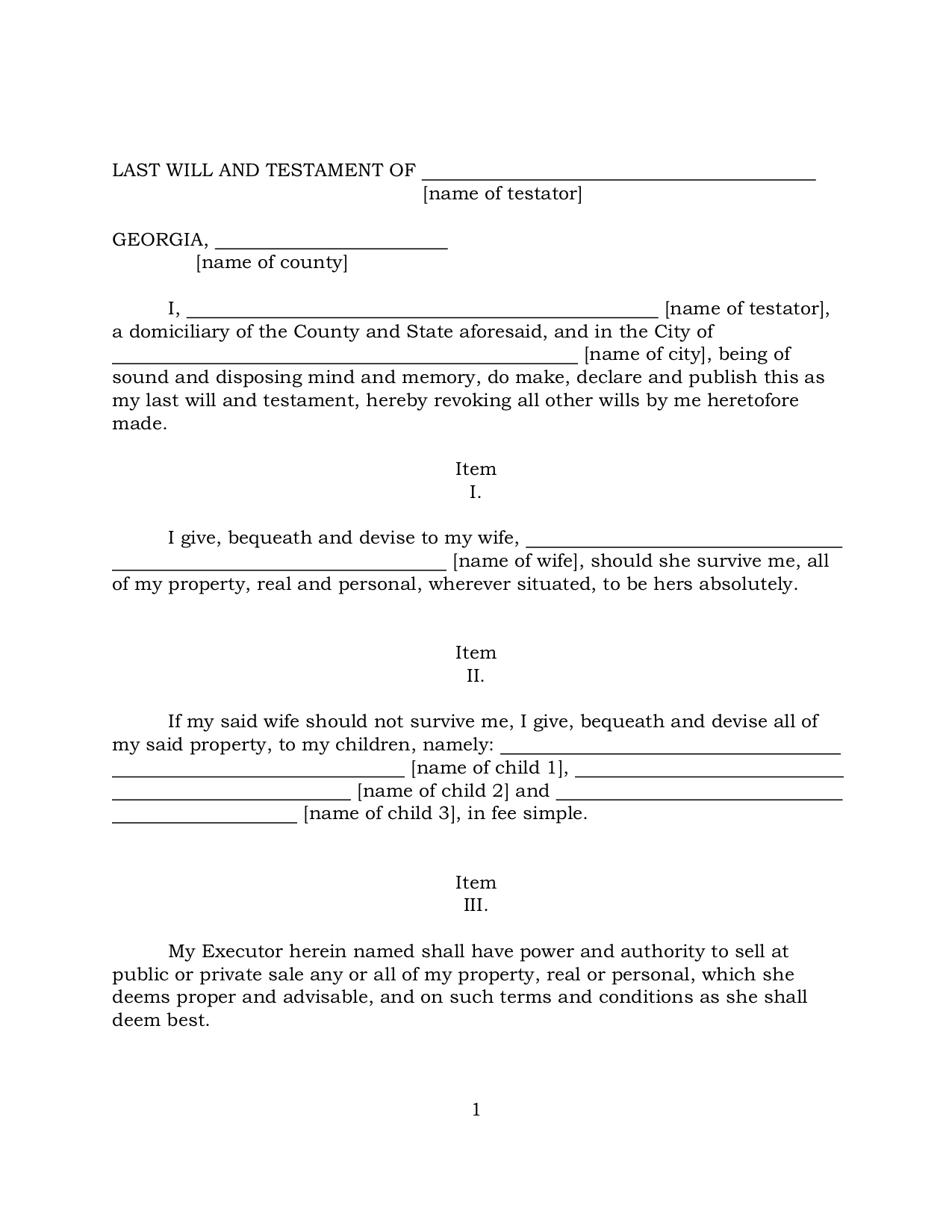
Last Will and Testament Form Sample
PRINTABLE PDF: Last Will and Testament Form Sample
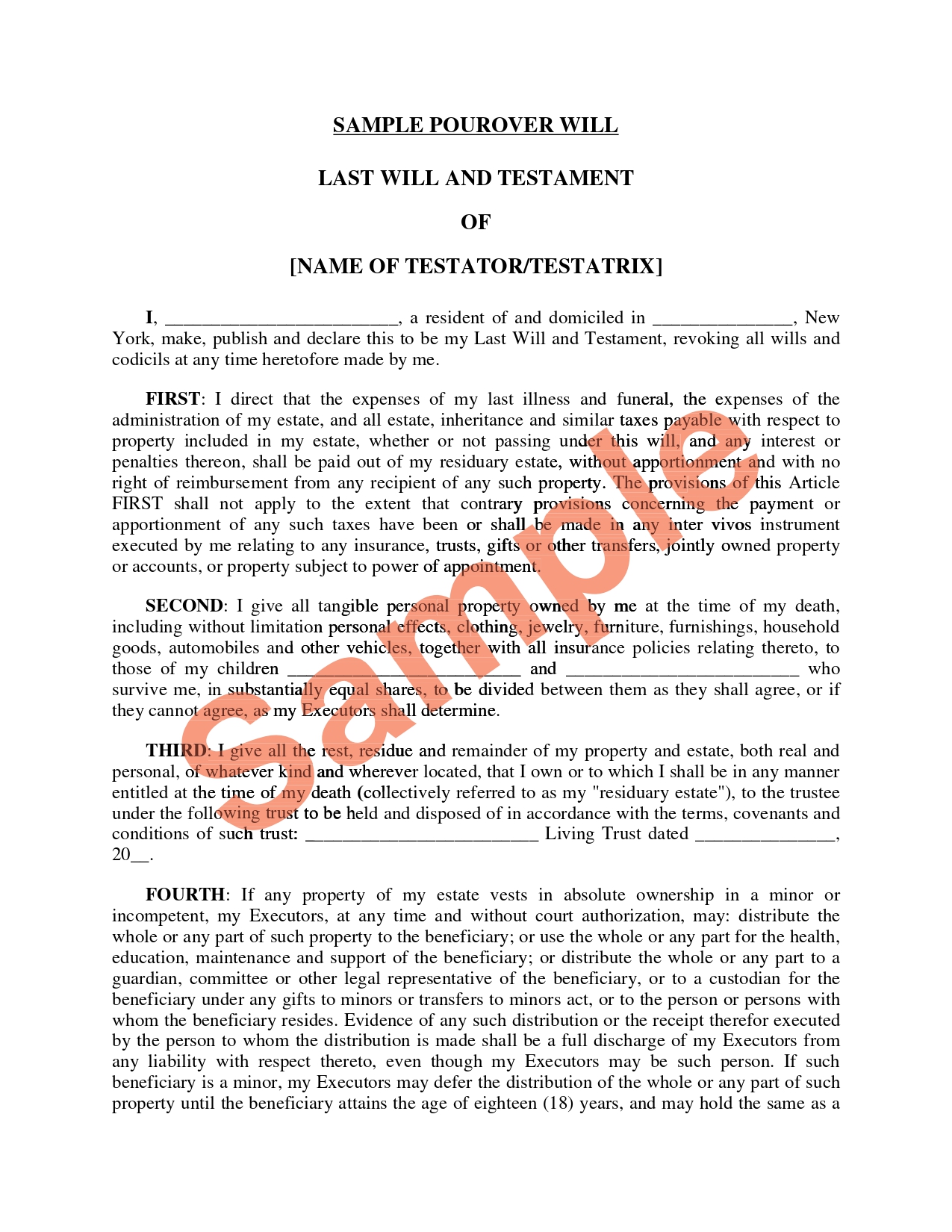
Will Form For a Married Person Who Has Children
PRINTABLE PDF: Will Form For a Married Person Who Has Children

Last Will and Testament Forms
PRINTABLE PDF: Last Will and Testament Forms
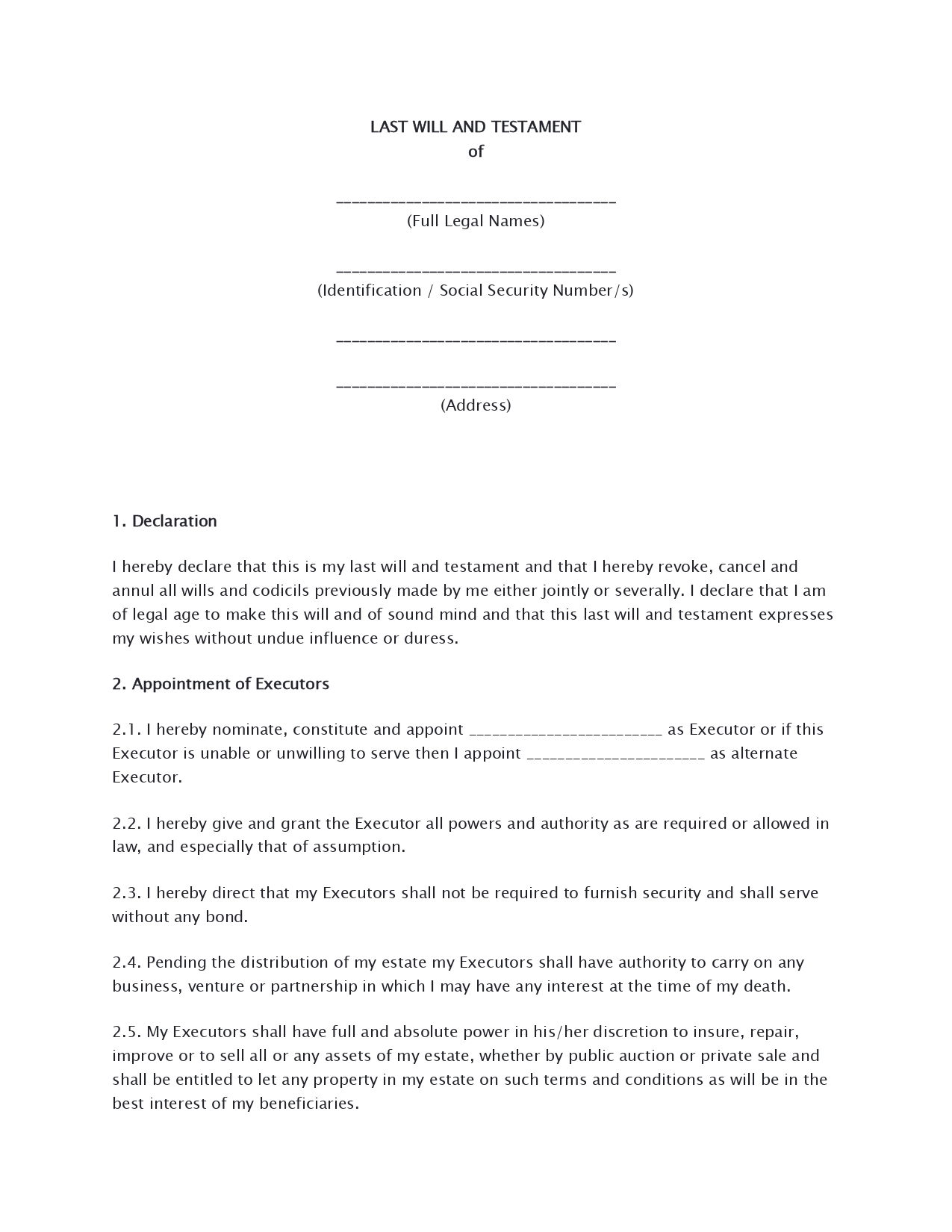
Last Will and Testament Form Married Couple
PRINTABLE PDF: Last Will and Testament Form Married Couple
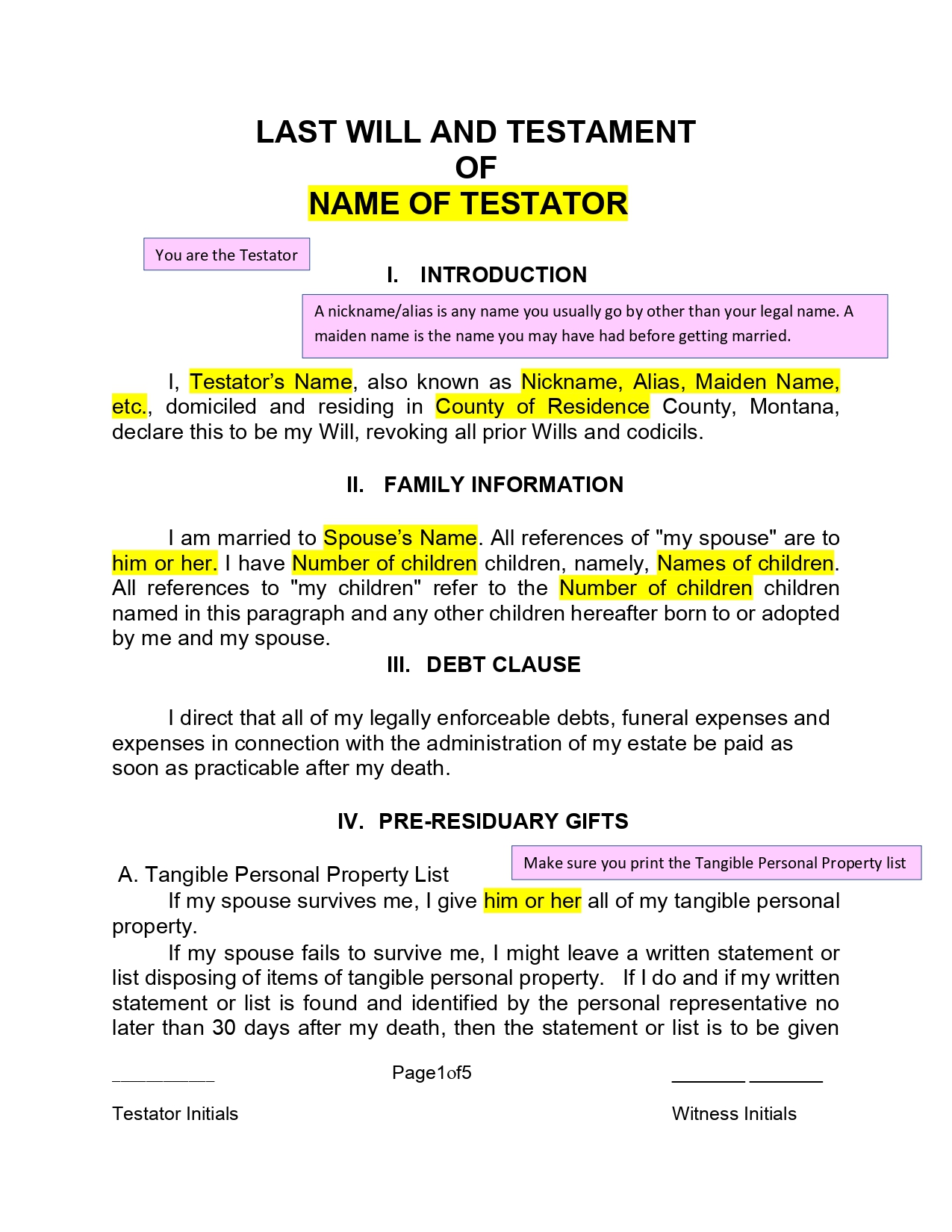
Last Will and Testament Form Example
PRINTABLE PDF: Last Will and Testament Form Example
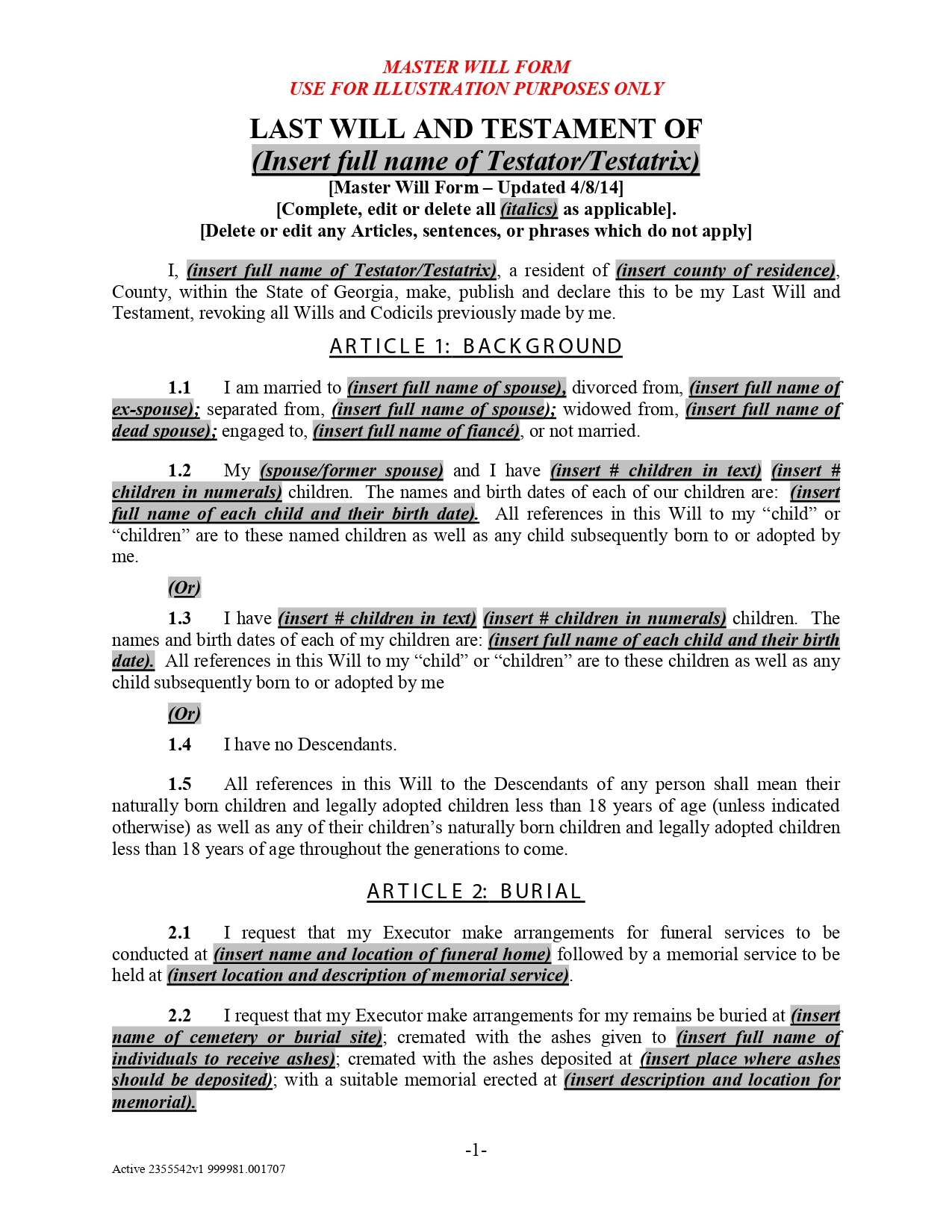
What Legal Considerations Should You Know About?
Once again, it’s crucial to understand the legal landscape surrounding last will and testament forms. To ensure your will is valid and enforceable, you must adhere to specific guidelines set by your state. Failing to comply with these regulations can lead to conflicts and potential challenges regarding the validity of your wishes after your passing.
State-Specific Requirements
Behind every valid will are varying rules established by different states. These laws dictate everything from the required language to the necessary format of the document. It is prudent to familiarize yourself with your state’s requirements to avoid any complications that could arise when you or your loved ones need to execute the will.
Witness and Notary Requirements
At times, simply drafting a will may not be enough; witnesses and notarization often play a pivotal role in confirming the authenticity of your document. Most states require that your will be signed in front of two witnesses who are not beneficiaries. Additionally, having your will notarized can further strengthen its validity, making it more difficult to contest.
And while the requirements may vary by state, the general expectation is that you ensure your will is properly witnessed and, if possible, notarized. This ensures that your final wishes are clear and legally binding. Take the time to select witnesses who are trustworthy and impartial, as this can help to prevent any disputes later. Notarizing your will can provide an extra layer of protection, adding more certainty to the entire process and supporting its legitimacy in the eyes of the court.
What Are Common Mistakes to Avoid in Creating a Will?
Not taking the time to understand the common mistakes associated with creating a Last Will and Testament can lead to significant issues down the line. Many individuals overlook the importance of properly executing their wills, leading to disputes and complications for their heirs.
Improper Execution
Above all, the execution of your will is vital. Each state has specific laws regarding how a will must be signed and witnessed. Failing to adhere to these requirements can render your will invalid, meaning your wishes might not be honored after your passing.
Unclear Asset Distribution
Against your intentions, unclear asset distribution can lead to family feuds and confusion among heirs. Clearly outlining how your assets should be divided is important to ensure that your wishes are carried out smoothly. Once your loved ones read your will, they should understand how you want each piece of your estate managed.
Further, providing detailed descriptions of assets and clearly naming beneficiaries can help avoid misunderstandings. Specify who gets what, whether it’s property, investments, or personal items, and include any contingencies if your primary beneficiary predeceases you. This attention to detail can greatly minimize conflict and uncertainty, protecting your loved ones during a difficult time.
Missing Important Provisions
By leaving out significant provisions in your will, you risk overlooking vital elements that could affect how your estate is managed and distributed. Important clauses, such as guardianship arrangements for your children, should never be omitted.
Missing these provisions can lead to potential issues and misunderstandings among your family. For instance, if you have minor children, naming a guardian in your will is important to ensure they are cared for by someone you trust. Additionally, consider including instructions for your digital assets and debts to provide clarity and guidance for your representatives, making the process easier for everyone involved.
How Should You Store and Update Your Will?
Many people overlook the importance of properly storing and regularly updating their wills. After creating your will, it is necessary to keep it in a safe, easily accessible location where it can be retrieved when needed. Regular updates ensure that your wishes reflect any changes in your life circumstances, such as marriage, divorce, or the birth of a child.
Safe Storage Options
The best storage options for your will include a fireproof safe at home, a safe deposit box at your bank, or an online document storage service. Ensure that only trusted family members or legal representatives know how to access your will, as this will facilitate the process when the time comes.
When to Review and Update?
Before significant life changes or milestones, you should review your will to ensure it accurately represents your wishes. This includes events like marrying, having children, or acquiring new assets.
It is advisable to review your will at least every few years or after any major life events to ensure it remains relevant to your current situation. Make adjustments as needed to reflect changes in beneficiaries, assets, or your overall estate plan. Failing to update your will may lead to unintended consequences, such as distributing assets incorrectly, which can cause disputes among your loved ones. Stay proactive and keep your will aligned with your current needs and wishes.
Conclusion
Ultimately, utilizing free printable last will and testament forms can help you ensure your wishes are clearly documented and legally recognized. By taking this step, you can provide peace of mind for yourself and your loved ones, knowing that your assets will be distributed according to your preferences. Make sure to follow your local laws and consider consulting a legal professional to ensure your will is valid and meets all necessary requirements. This proactive approach to estate planning is a responsible way to secure your legacy.
Frequently Asked Questions (FAQs)
1. What is a Last Will and Testament?
A Last Will and Testament is a legal document that outlines how a person’s assets and property will be distributed after their death. It can also specify guardianship for minor children and appoint an executor to manage the estate.
2. Where can I find free printable Last Will and Testament forms?
There are many reputable websites that offer free printable Last Will and Testament forms. It is important to ensure that the forms comply with the laws of your state, as legal requirements can vary.
3. Are free printable Last Will and Testament forms legally binding?
Yes, free printable Last Will and Testament forms can be legally binding if they are filled out correctly and meet the legal requirements of your state. This typically includes being signed in the presence of witnesses and notaries as stipulated by local laws.
4. Can I customize the free printable Last Will and Testament forms?
Yes, most free printable forms can be customized to fit your specific needs. You can adjust beneficiaries, specify distribution of assets, and include personal wishes, as long as you adhere to legal requirements.
5. Is it advisable to consult an attorney when creating a Last Will and Testament?
While it is possible to create a Last Will and Testament using free printable forms without legal assistance, consulting an attorney is often a good idea. An attorney can provide guidance to ensure that your will is valid and addresses all necessary aspects of your estate.
6. How do I store my Last Will and Testament once it is completed?
Once your Last Will and Testament is completed and signed, it is advisable to store it in a safe place, such as a safe deposit box or a fireproof home safe. You should also inform trusted family members or your executor about its location.
7. Can I change my Last Will and Testament after it is created?
Yes, you can change your Last Will and Testament at any time, as long as you are of sound mind. Changes can be made by creating a new will or amending the existing one with a codicil. Ensure that any changes comply with your state’s legal requirements.
